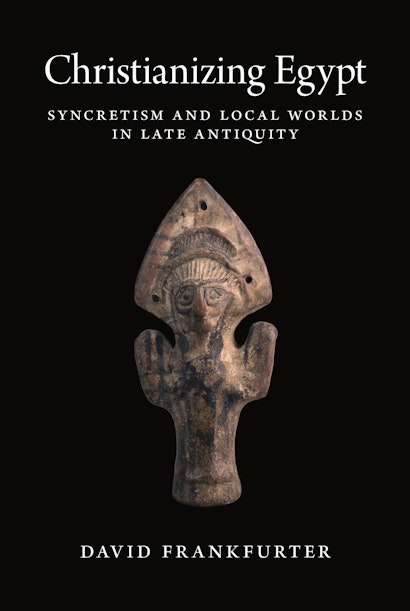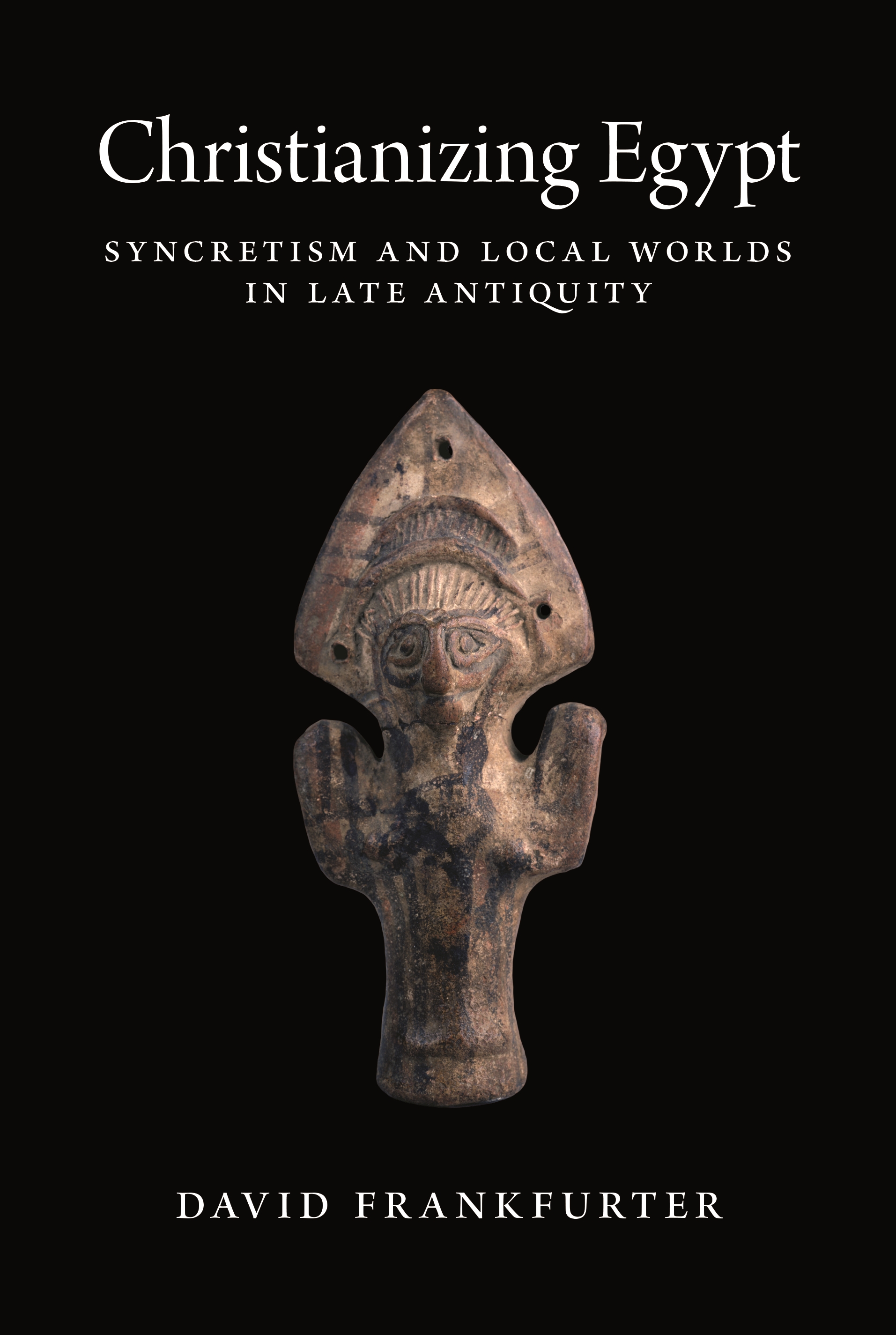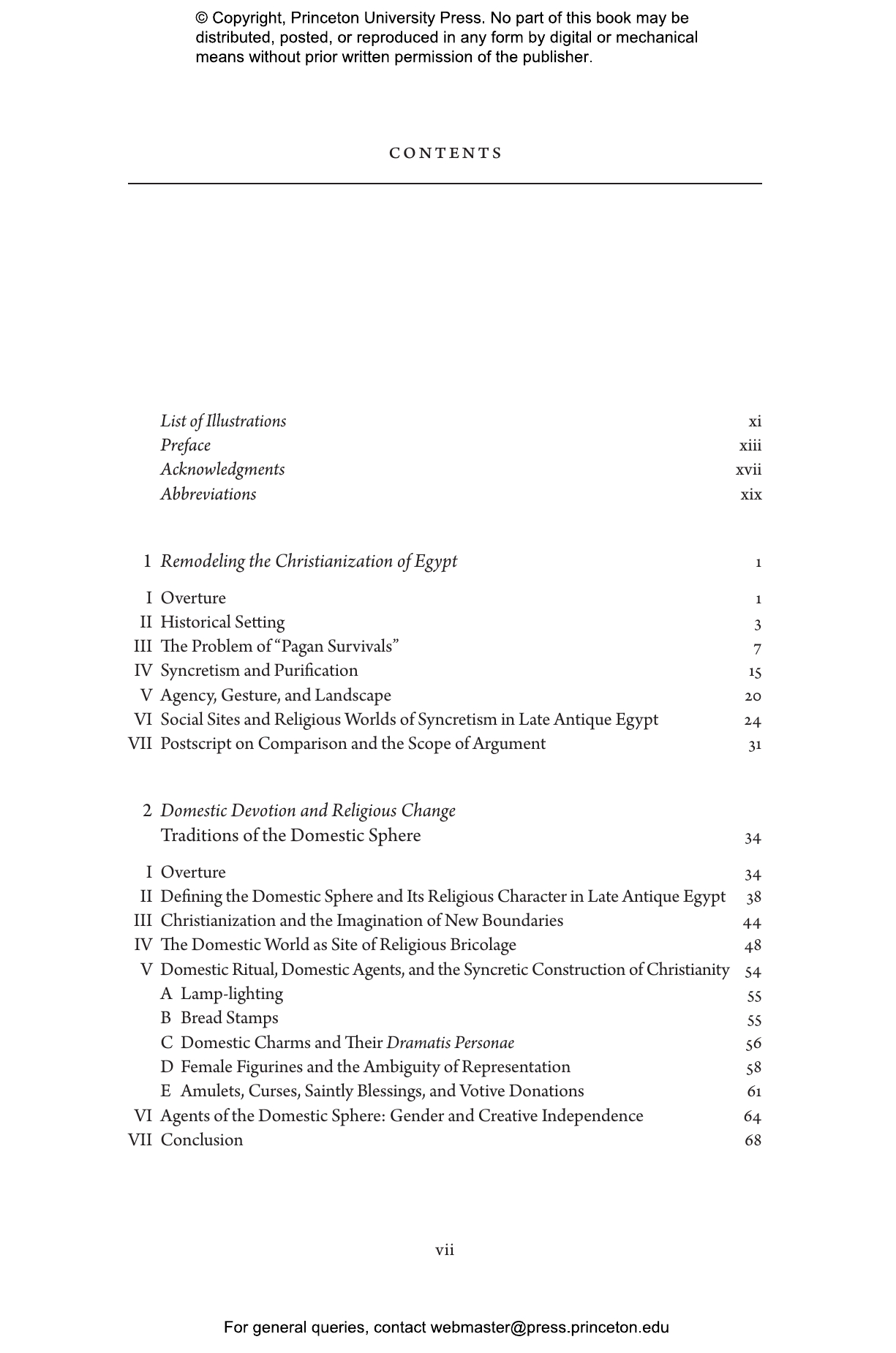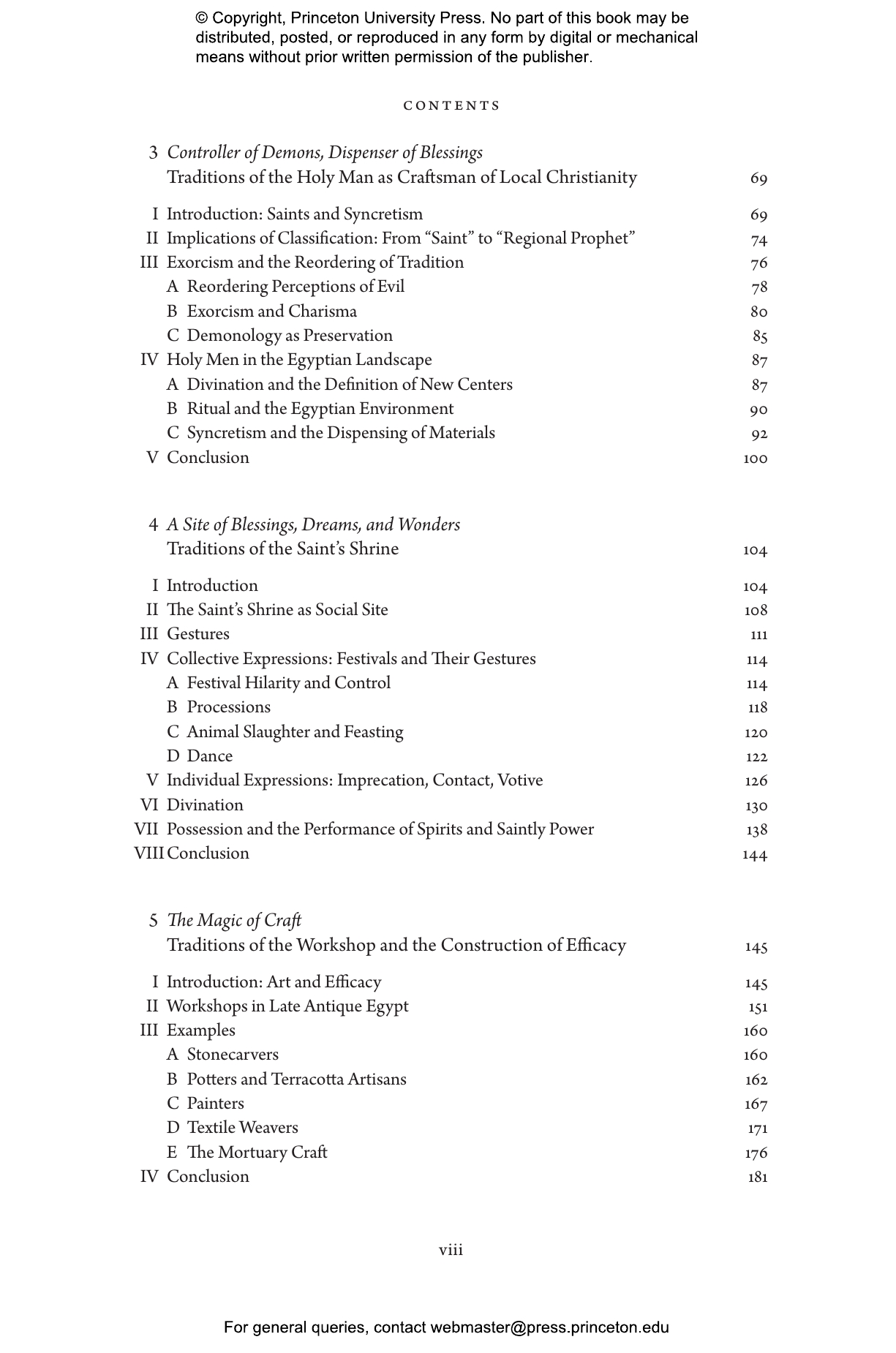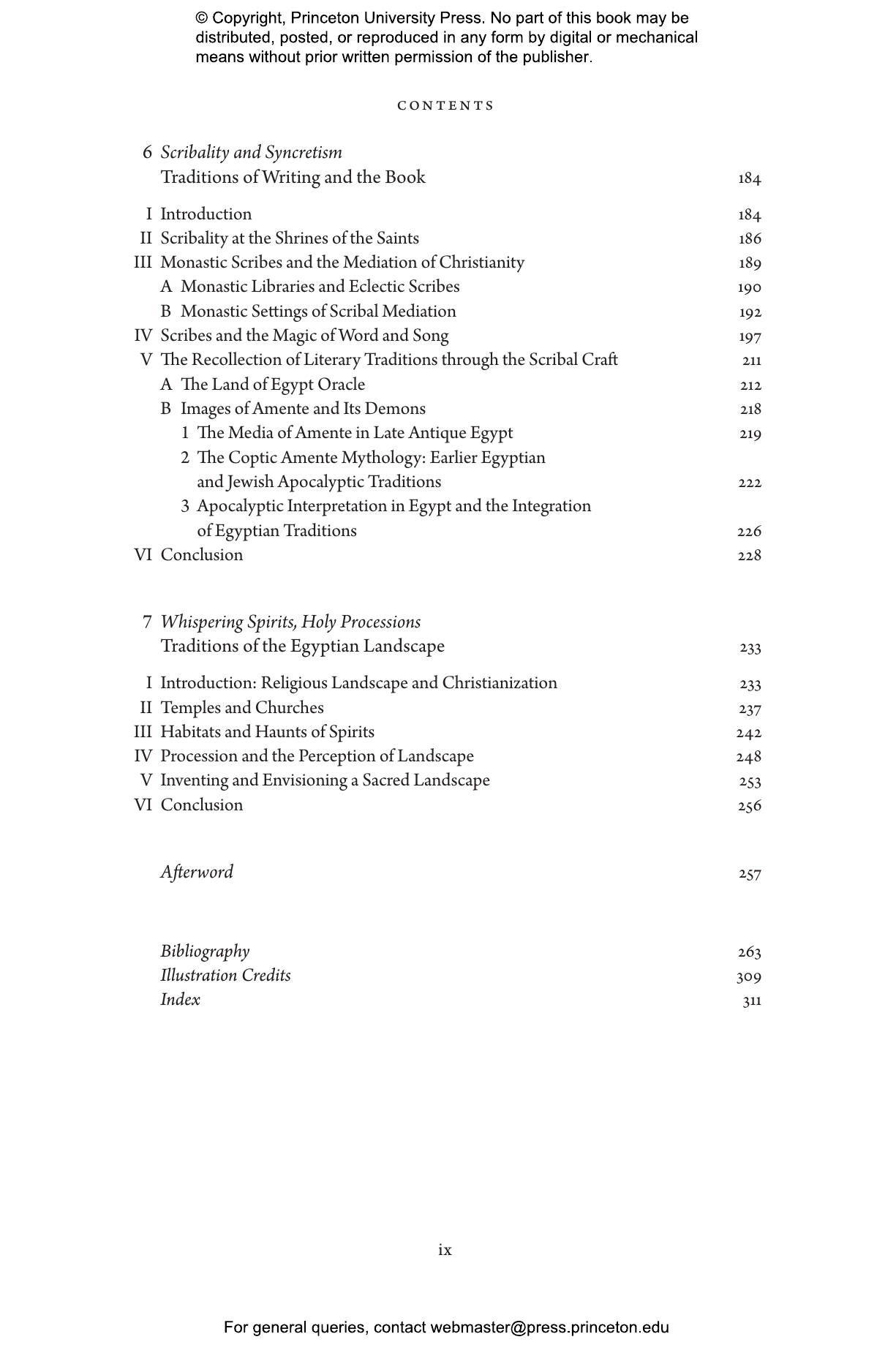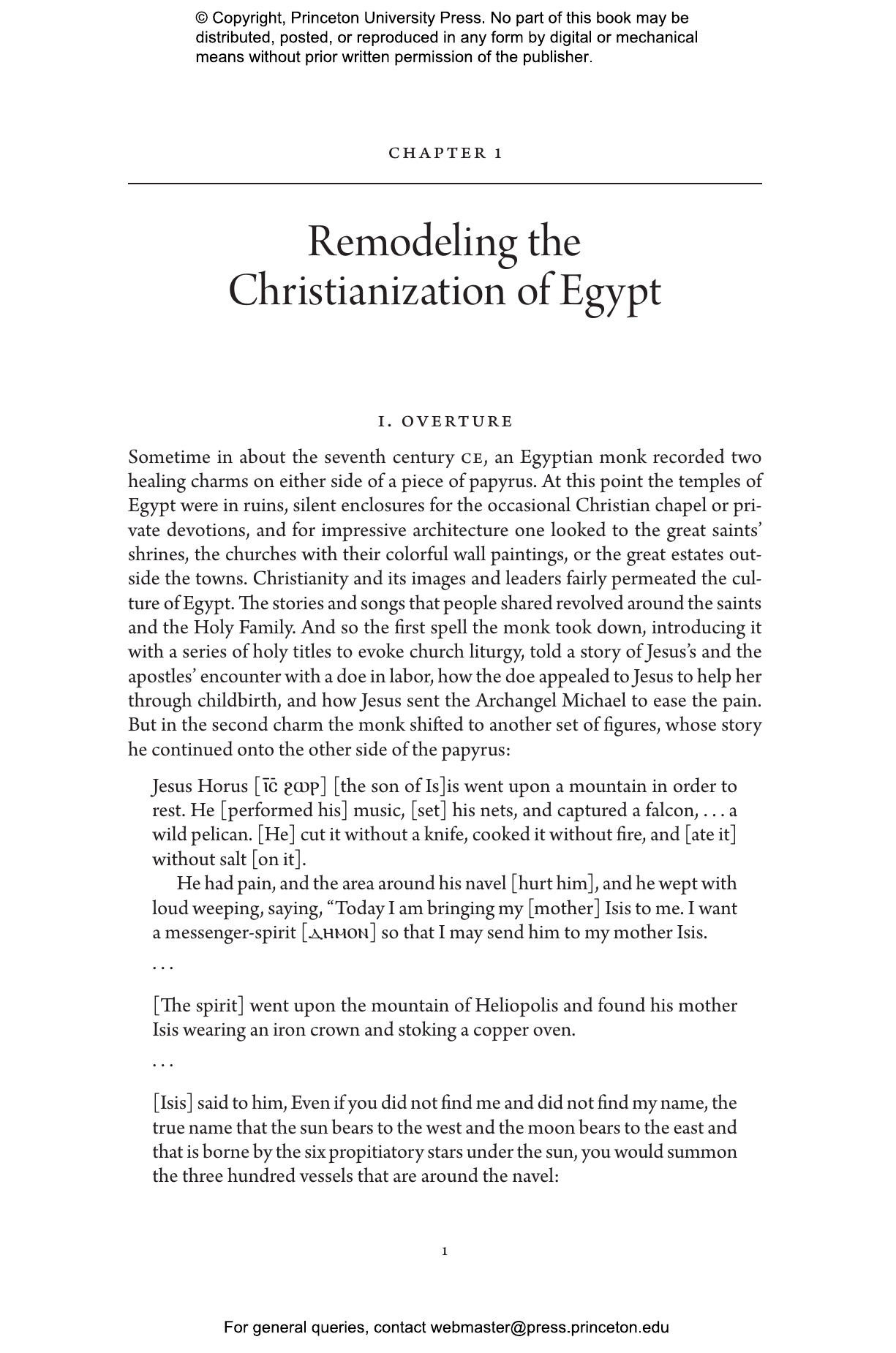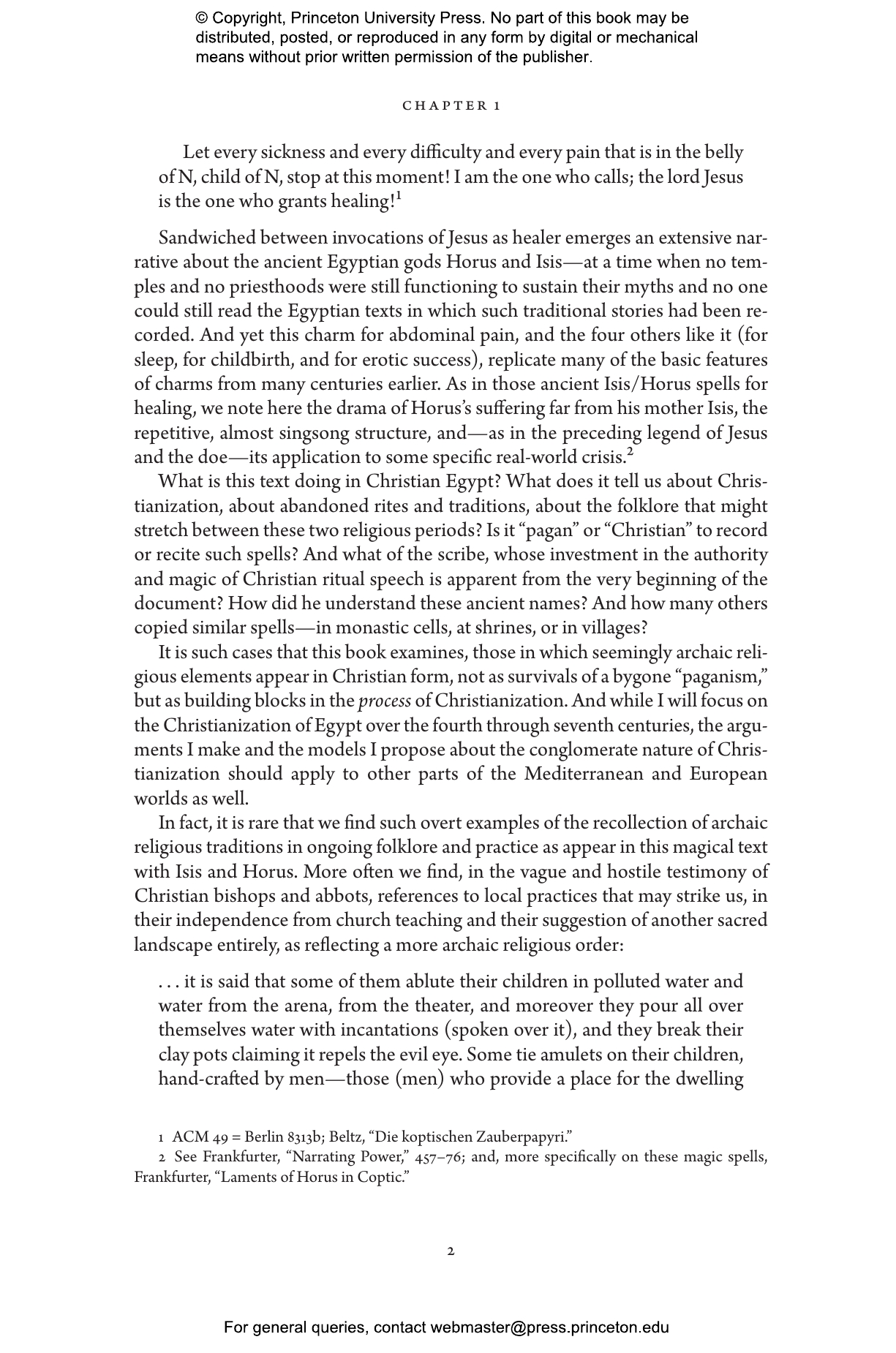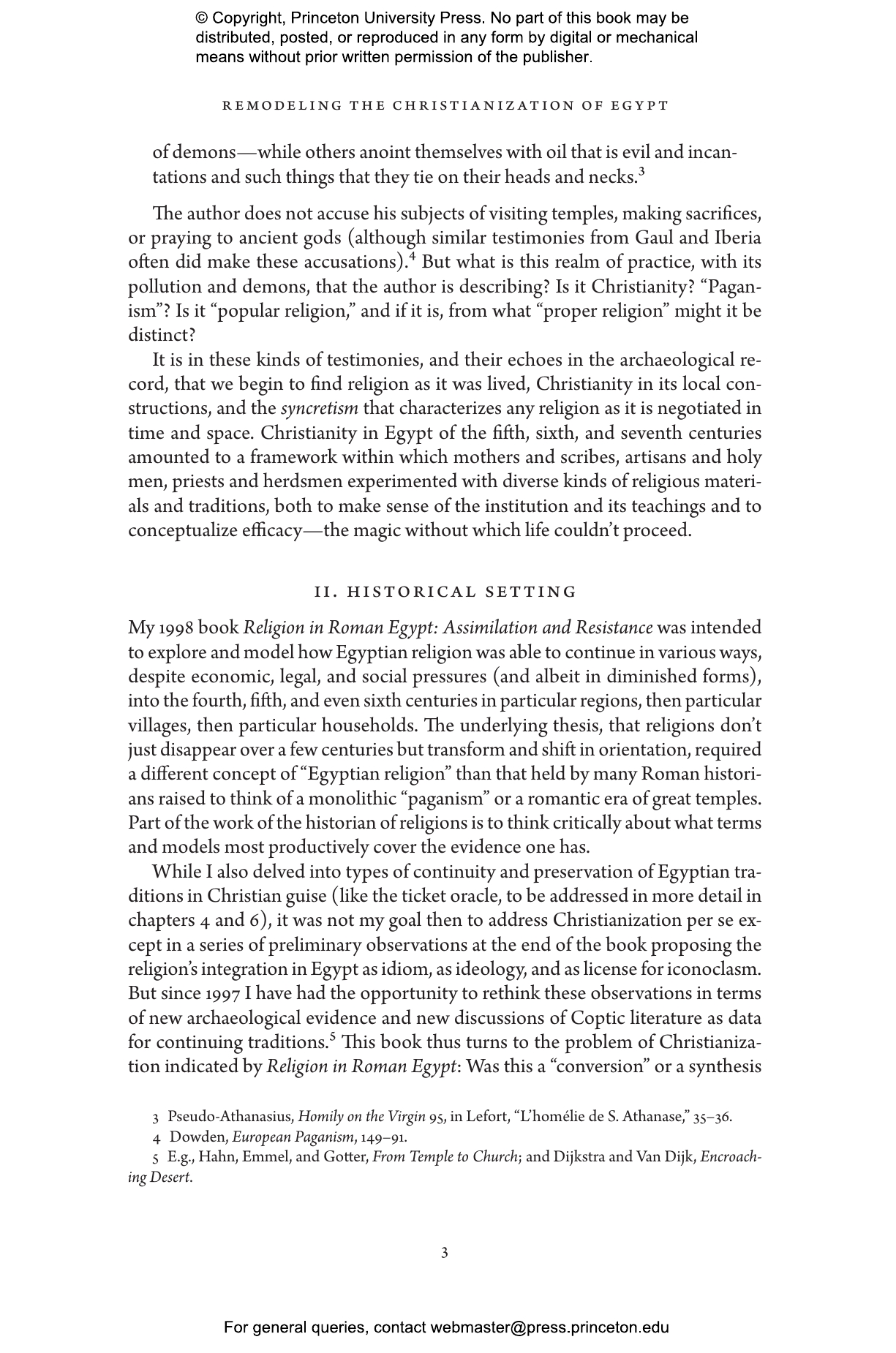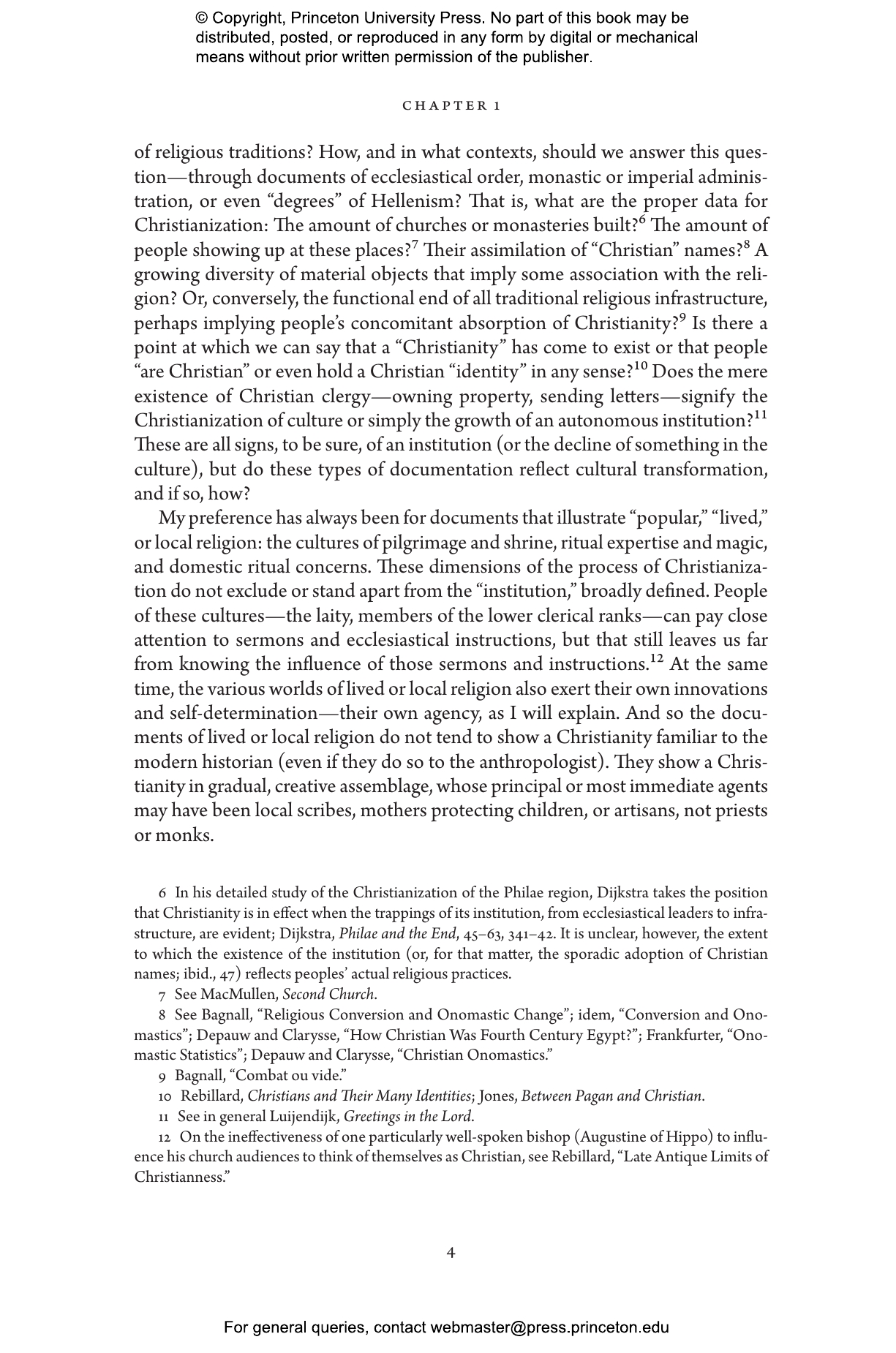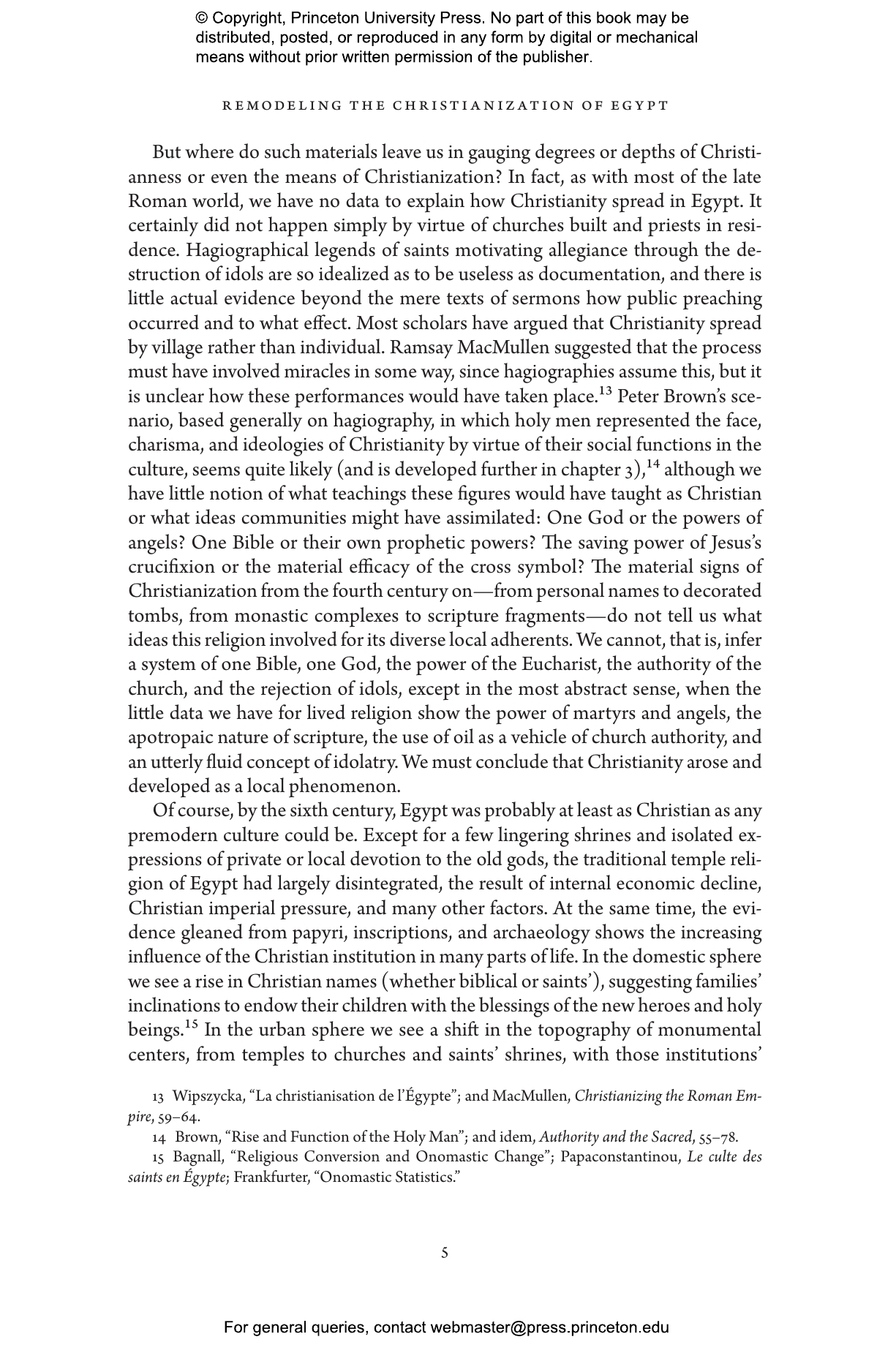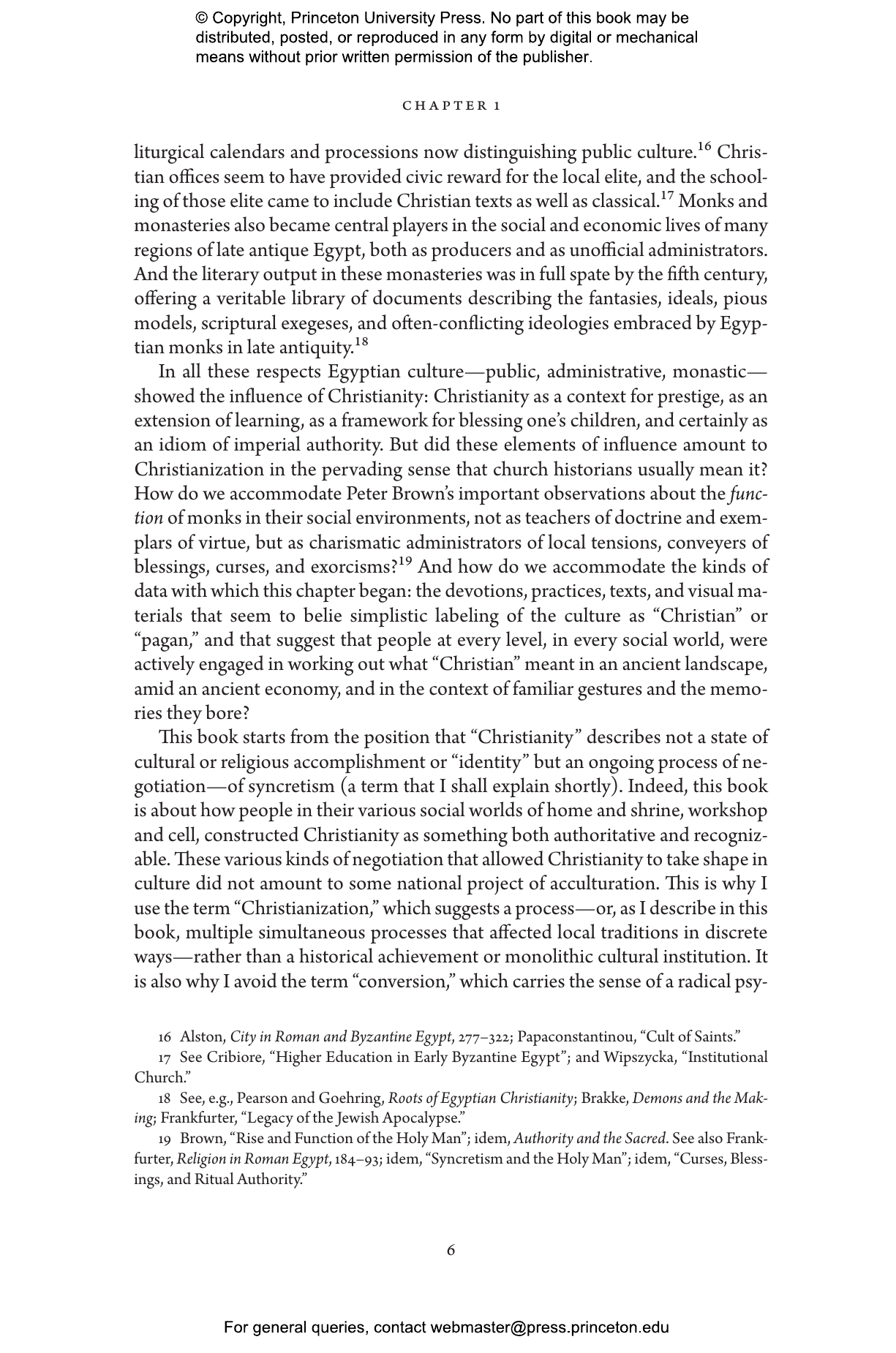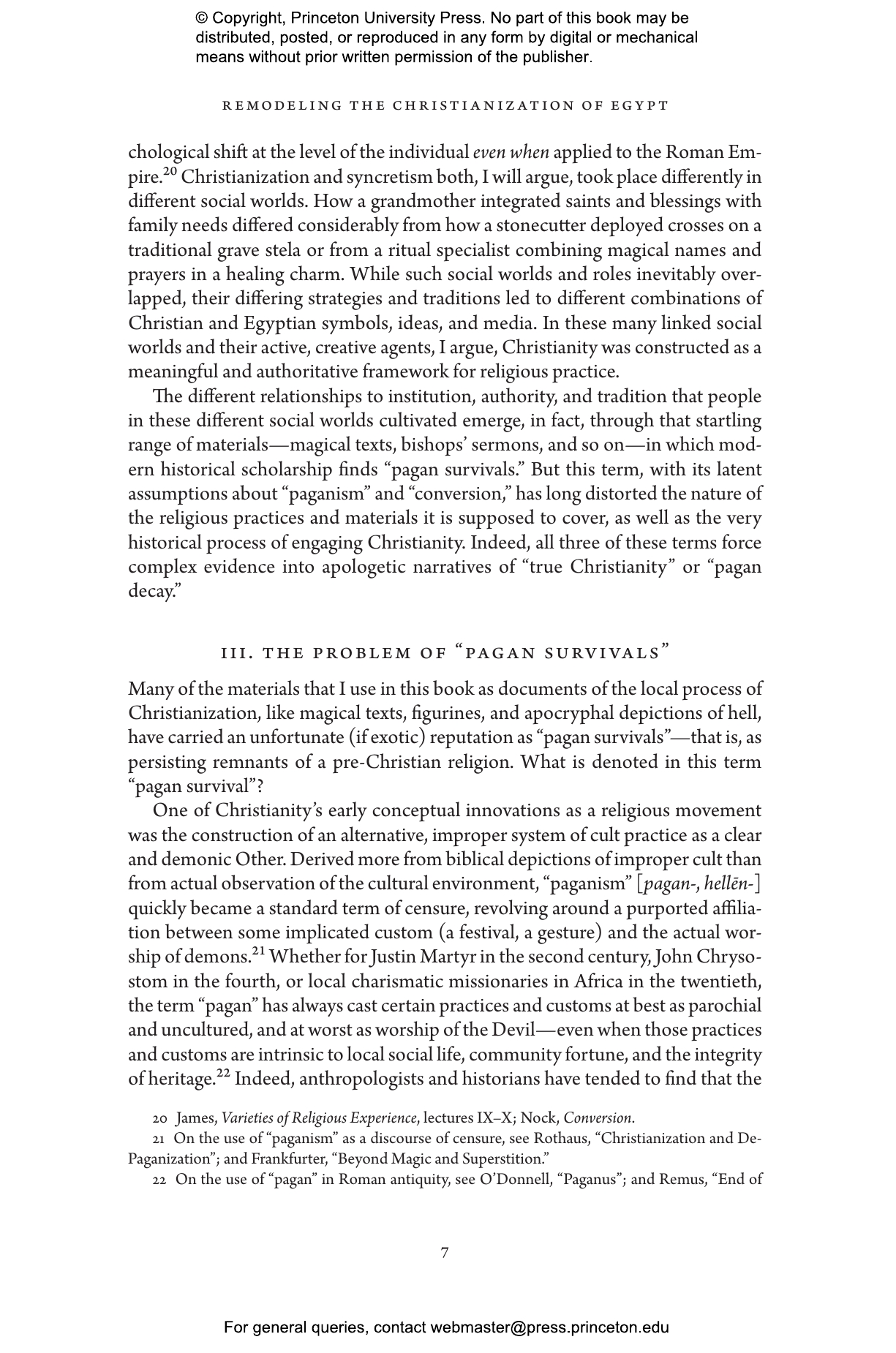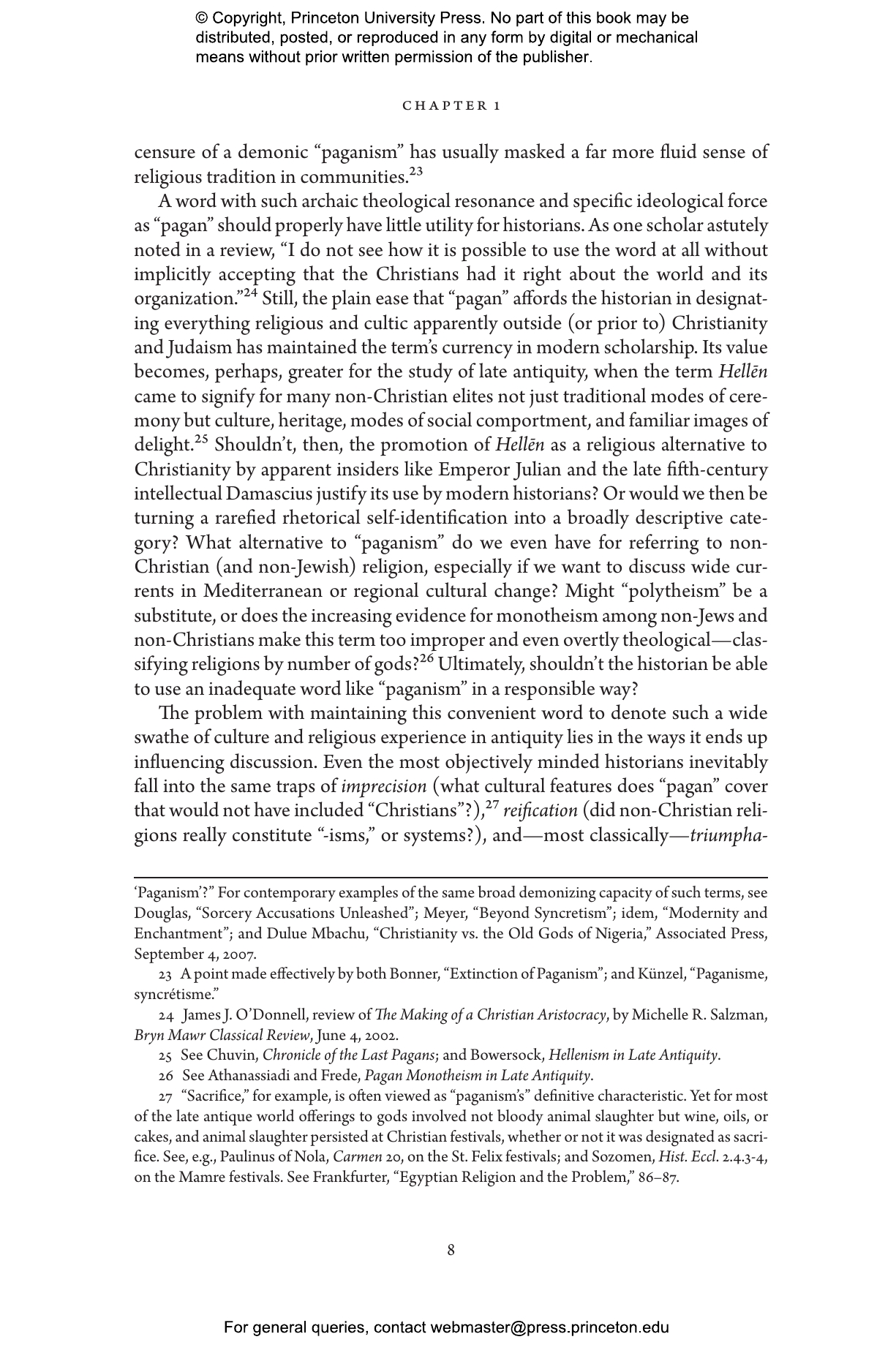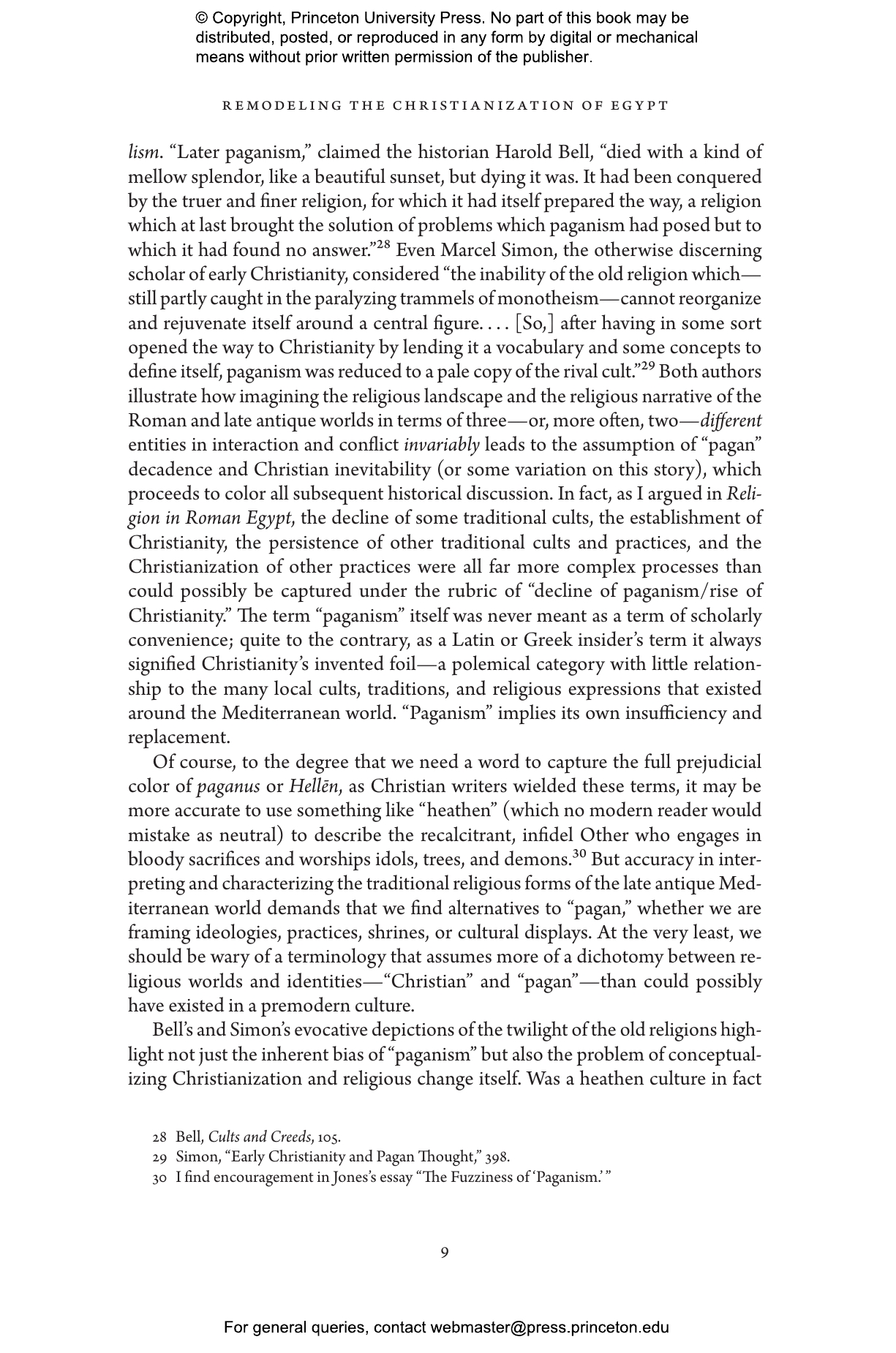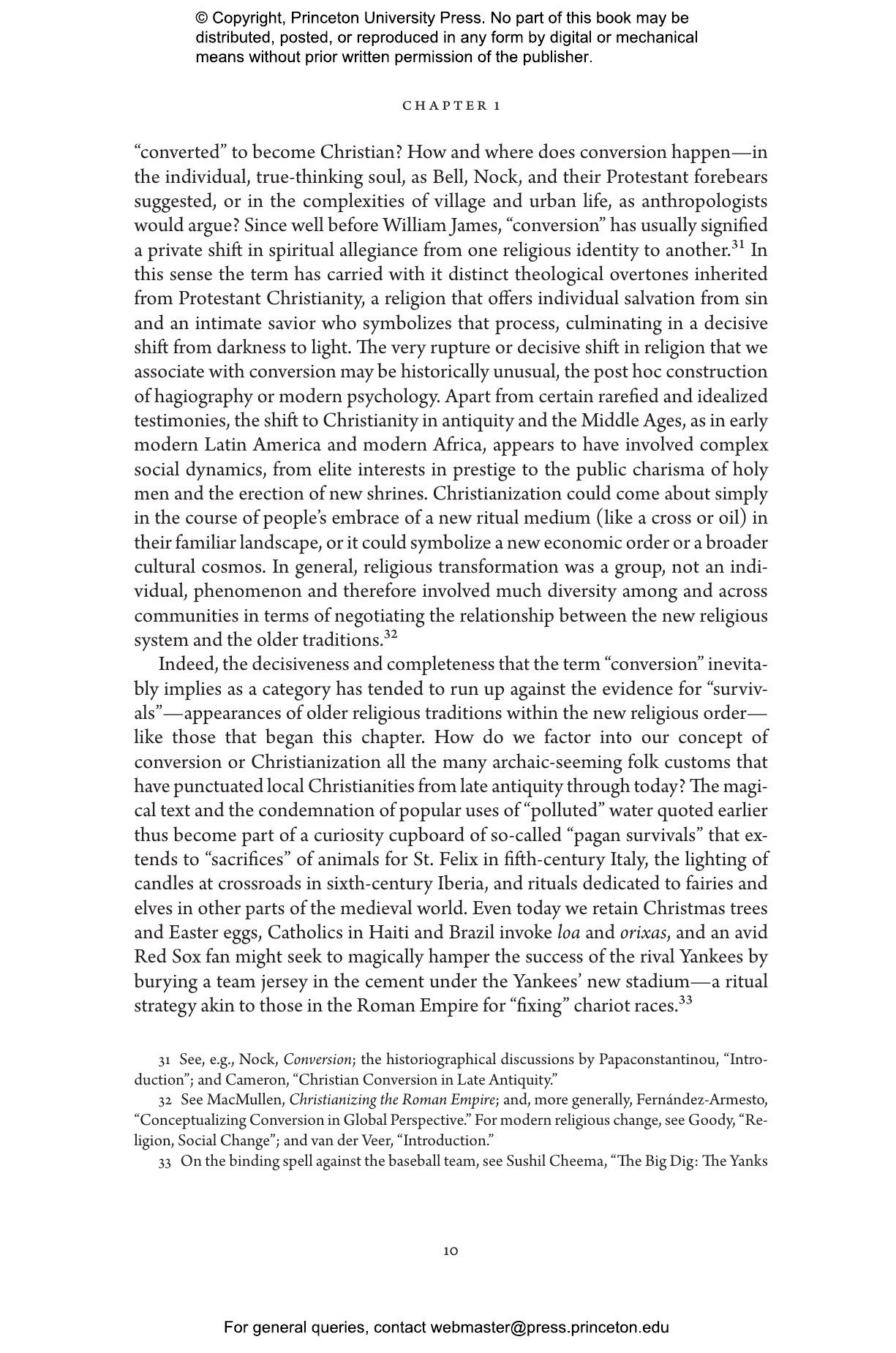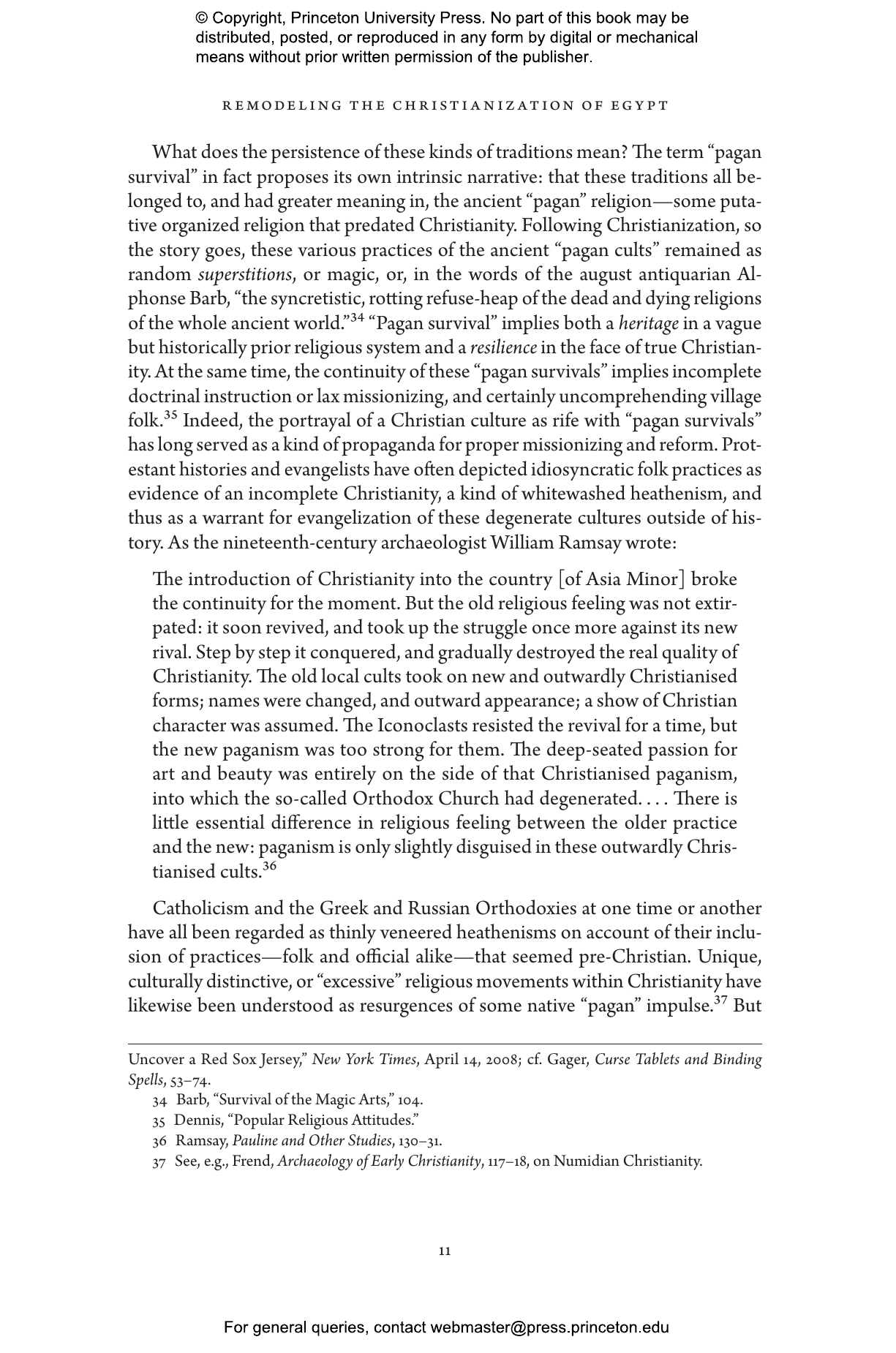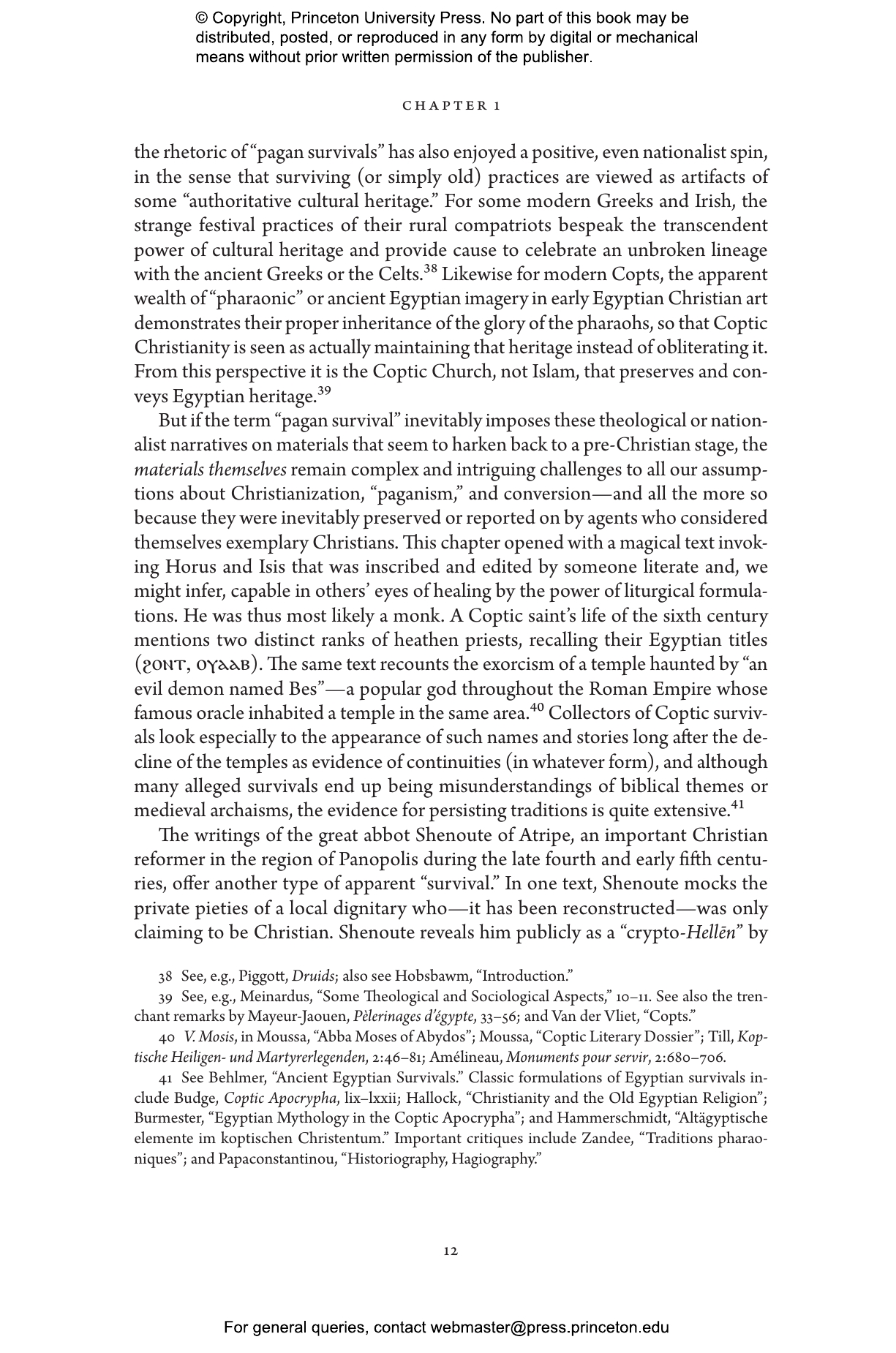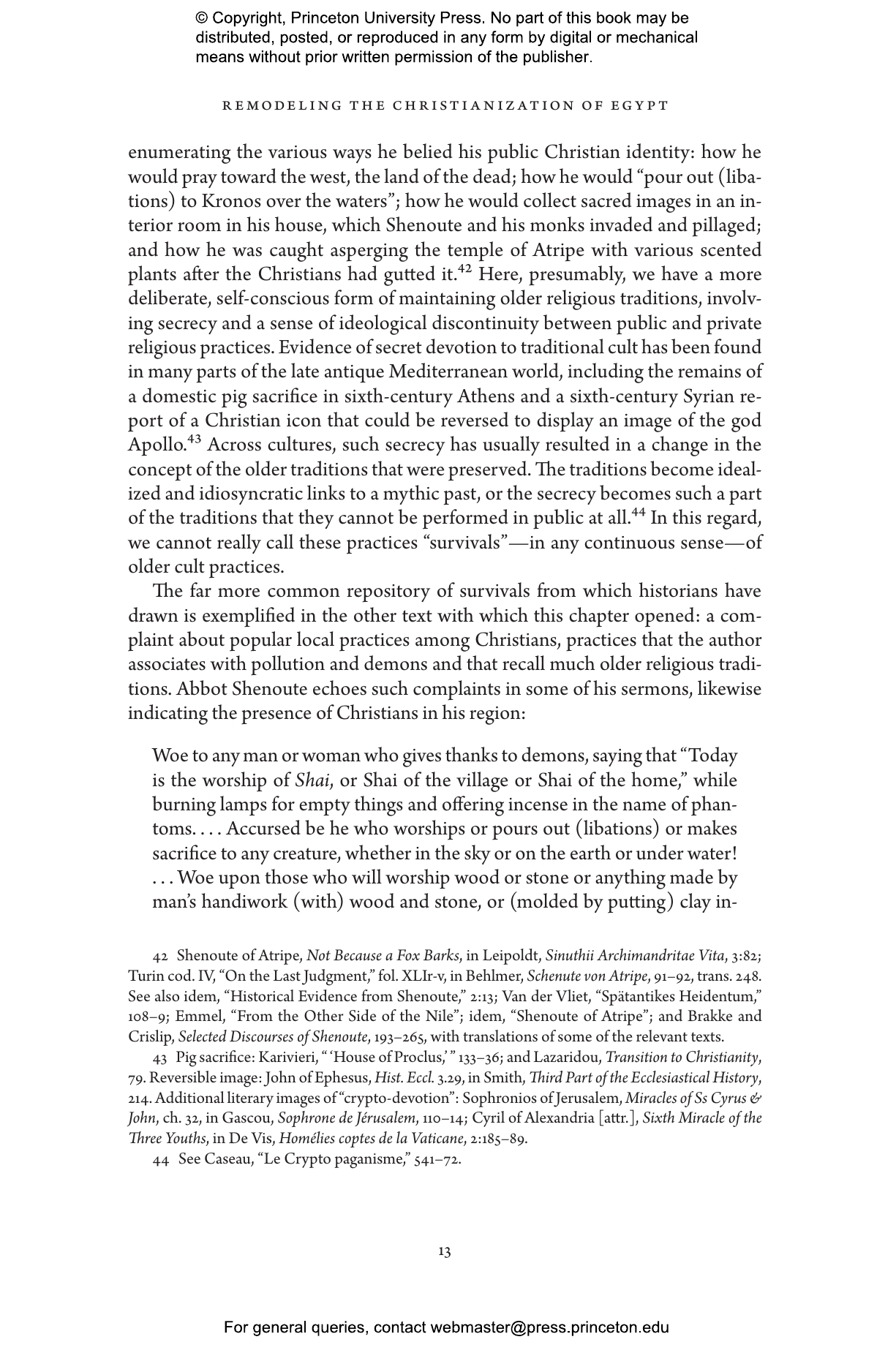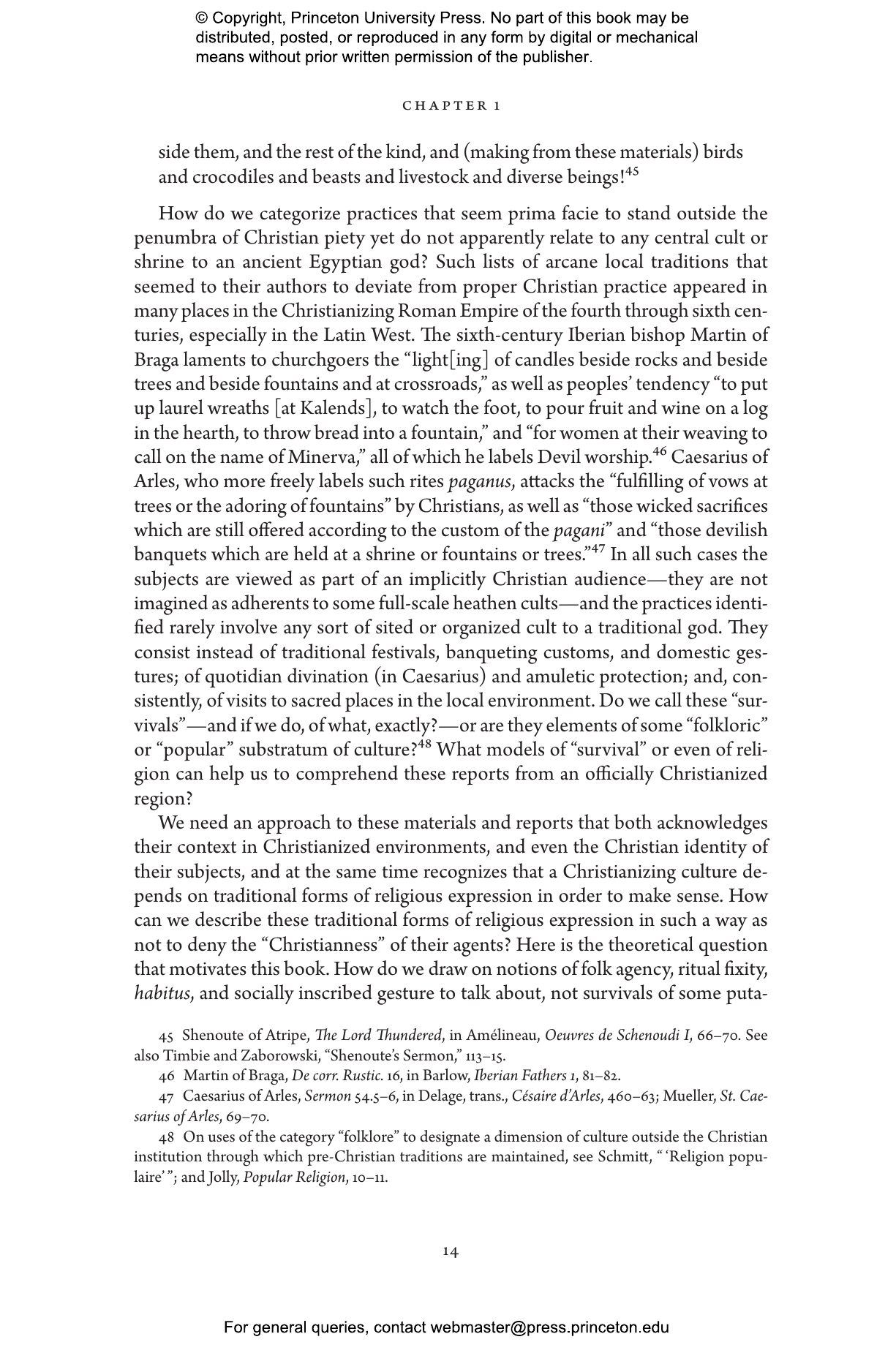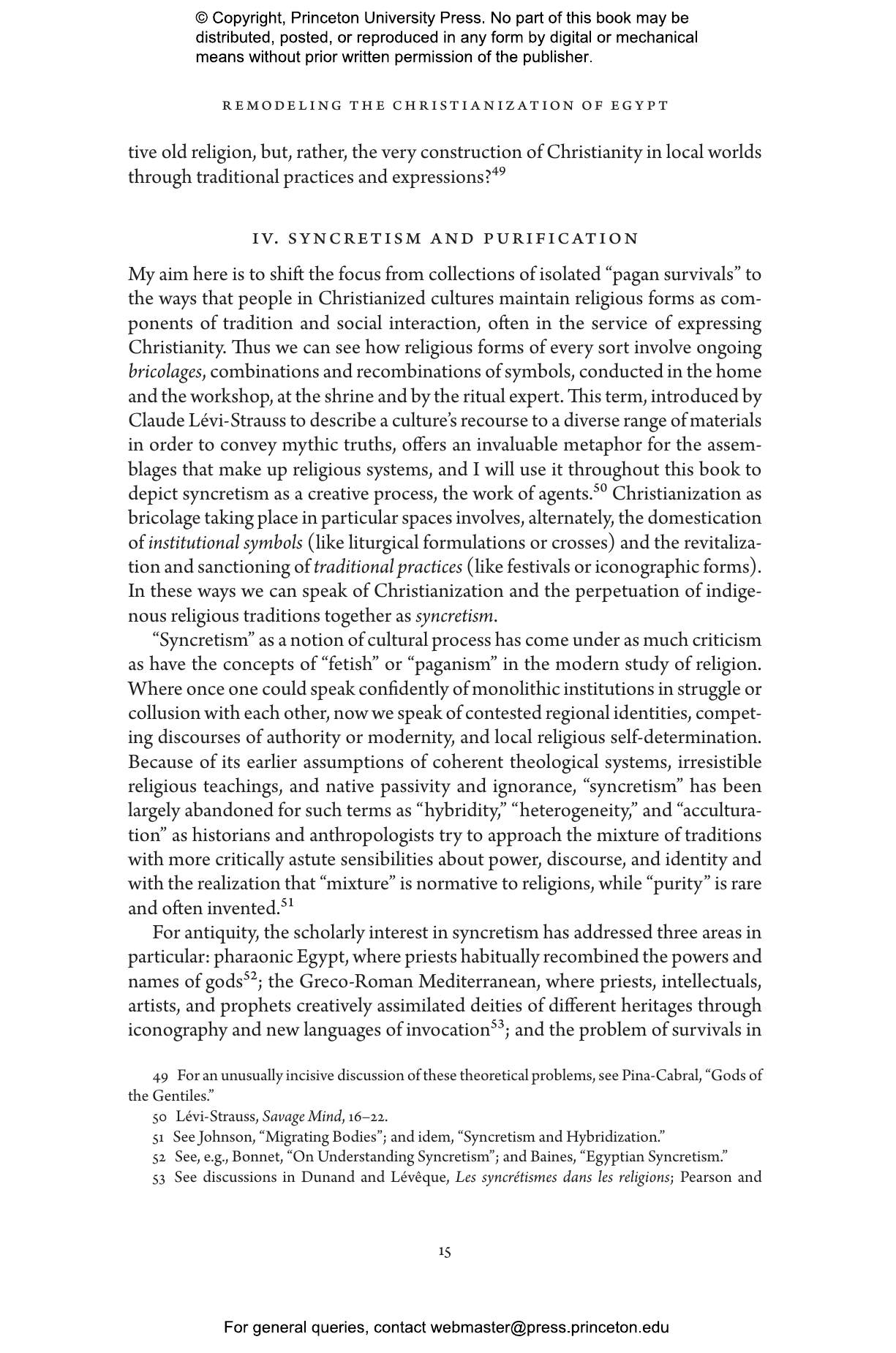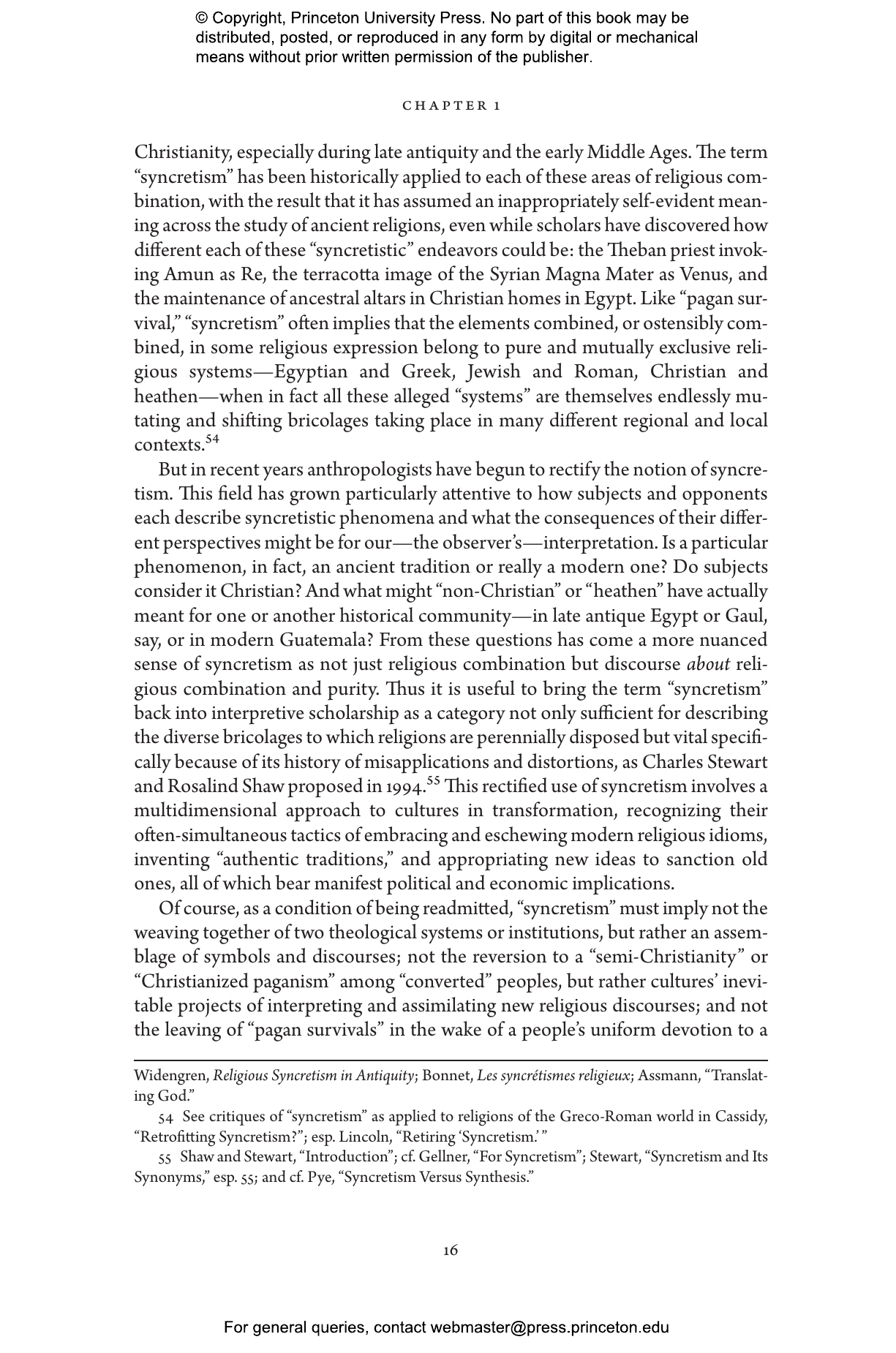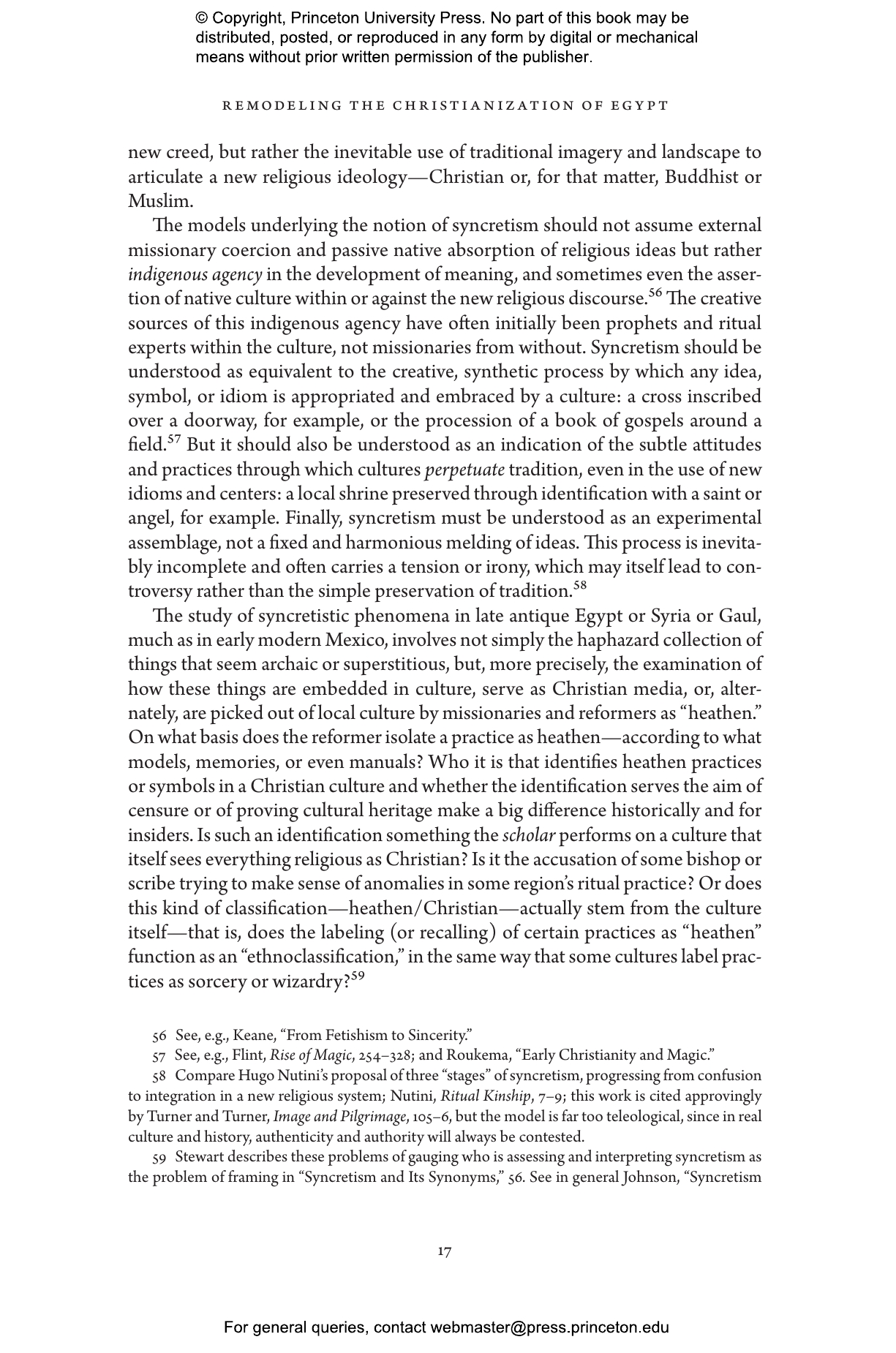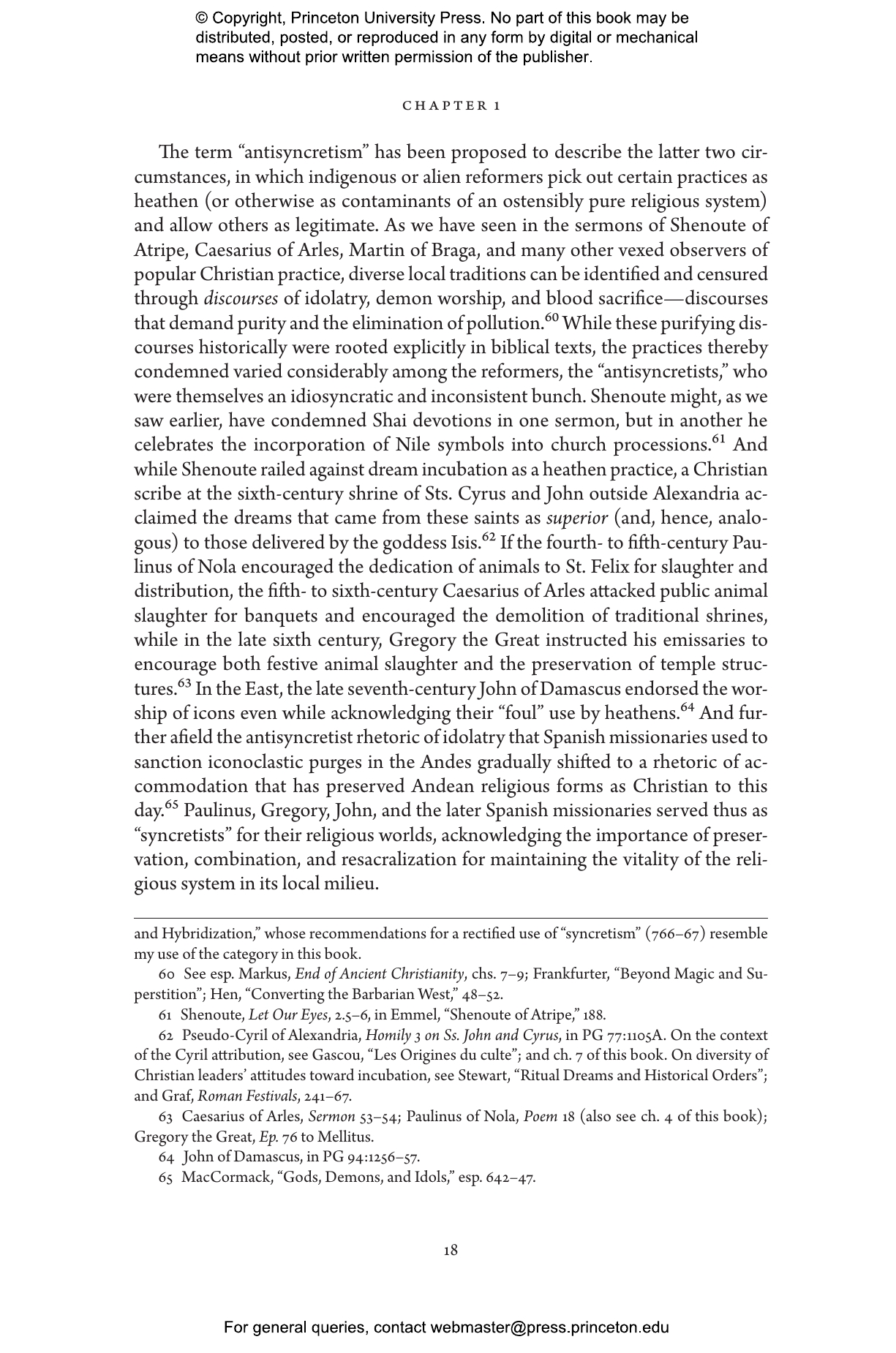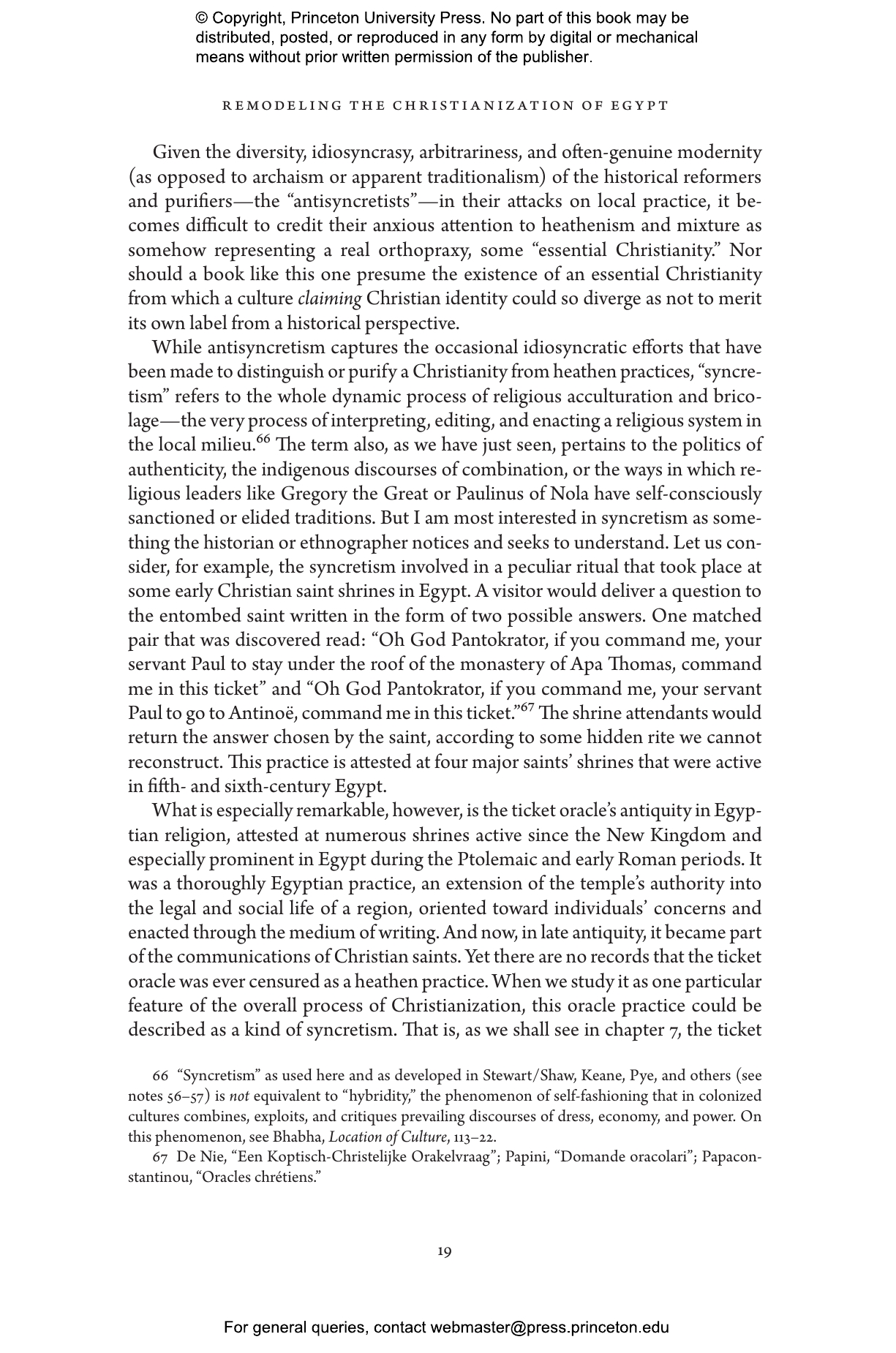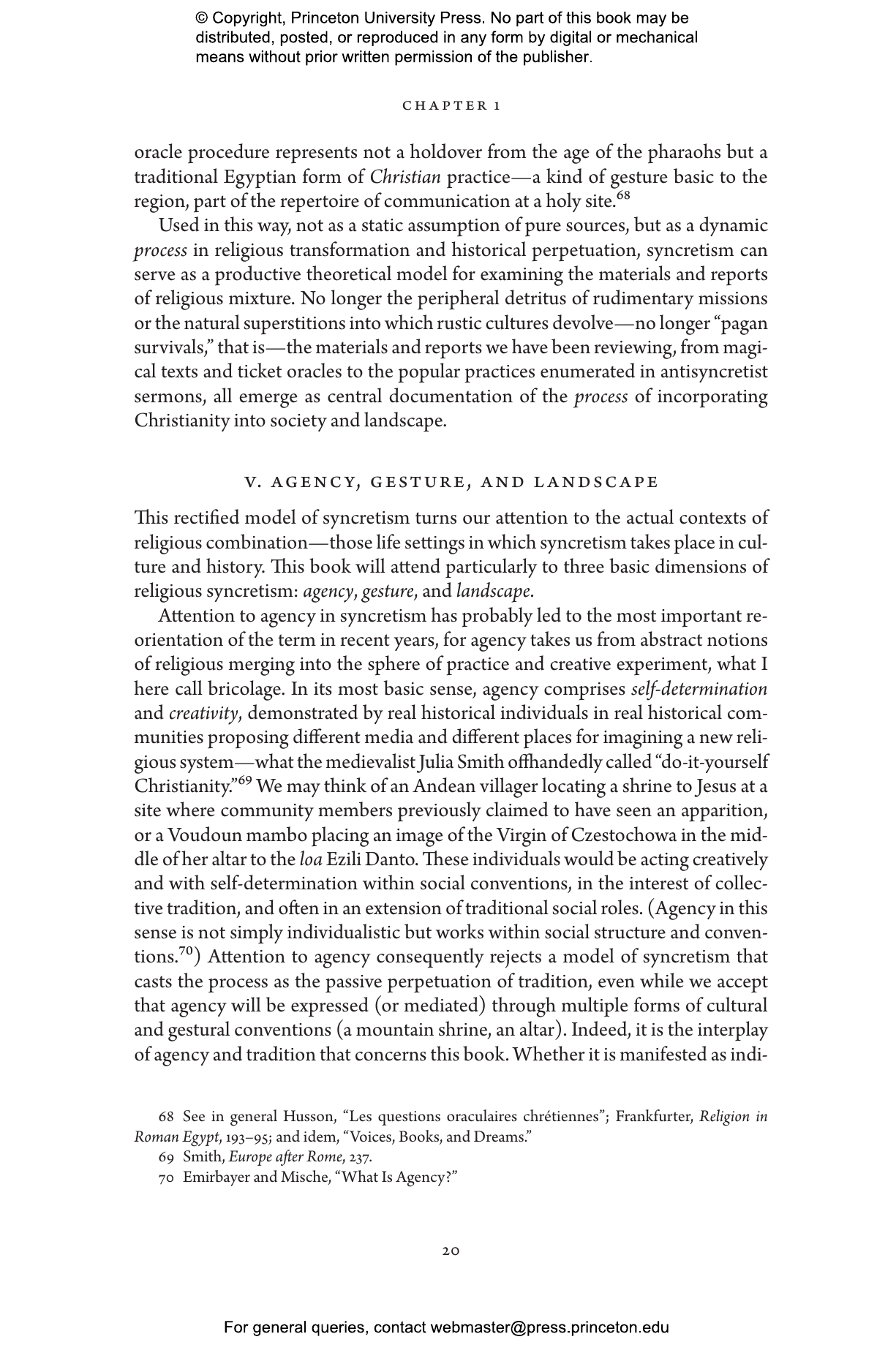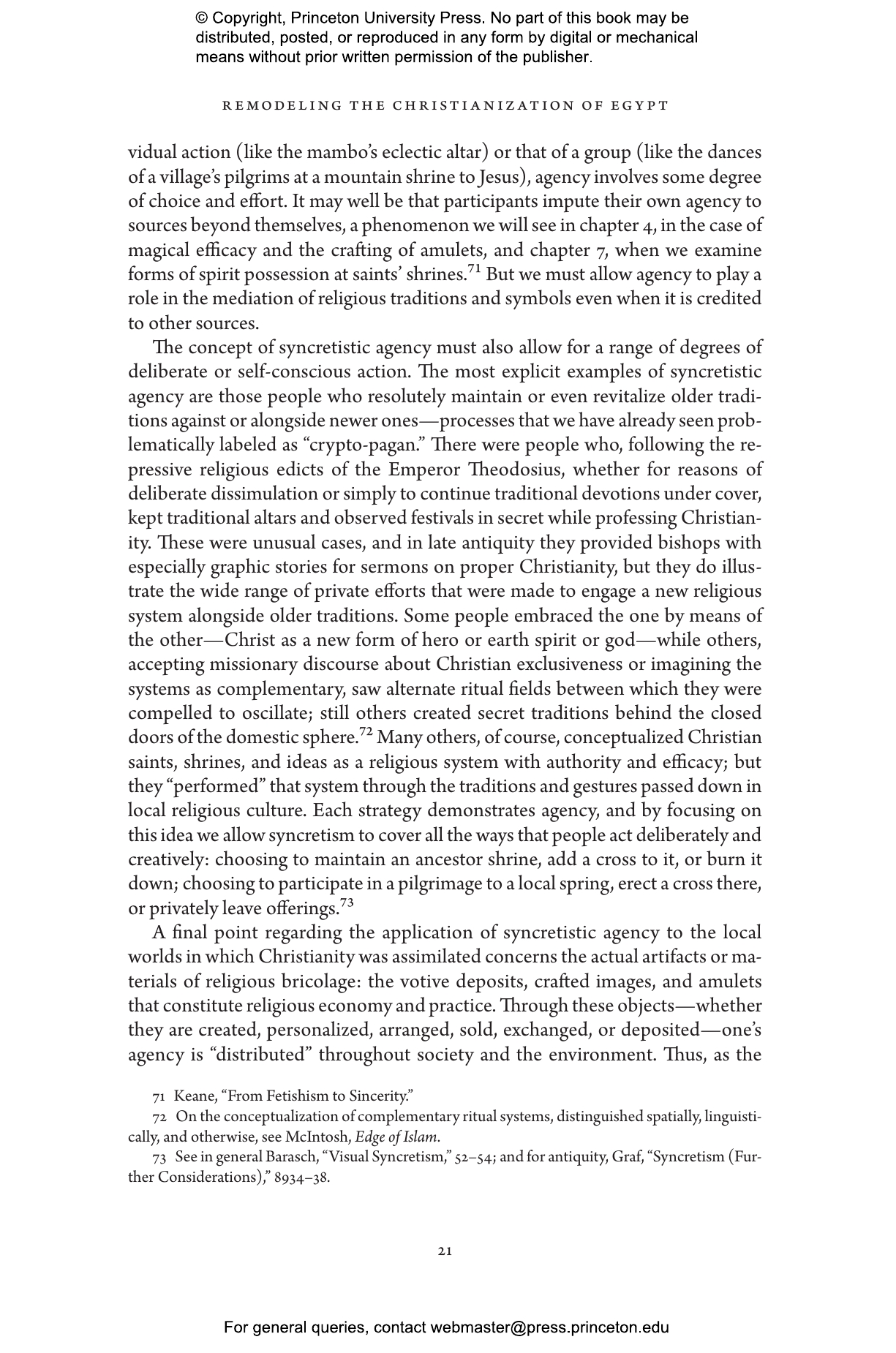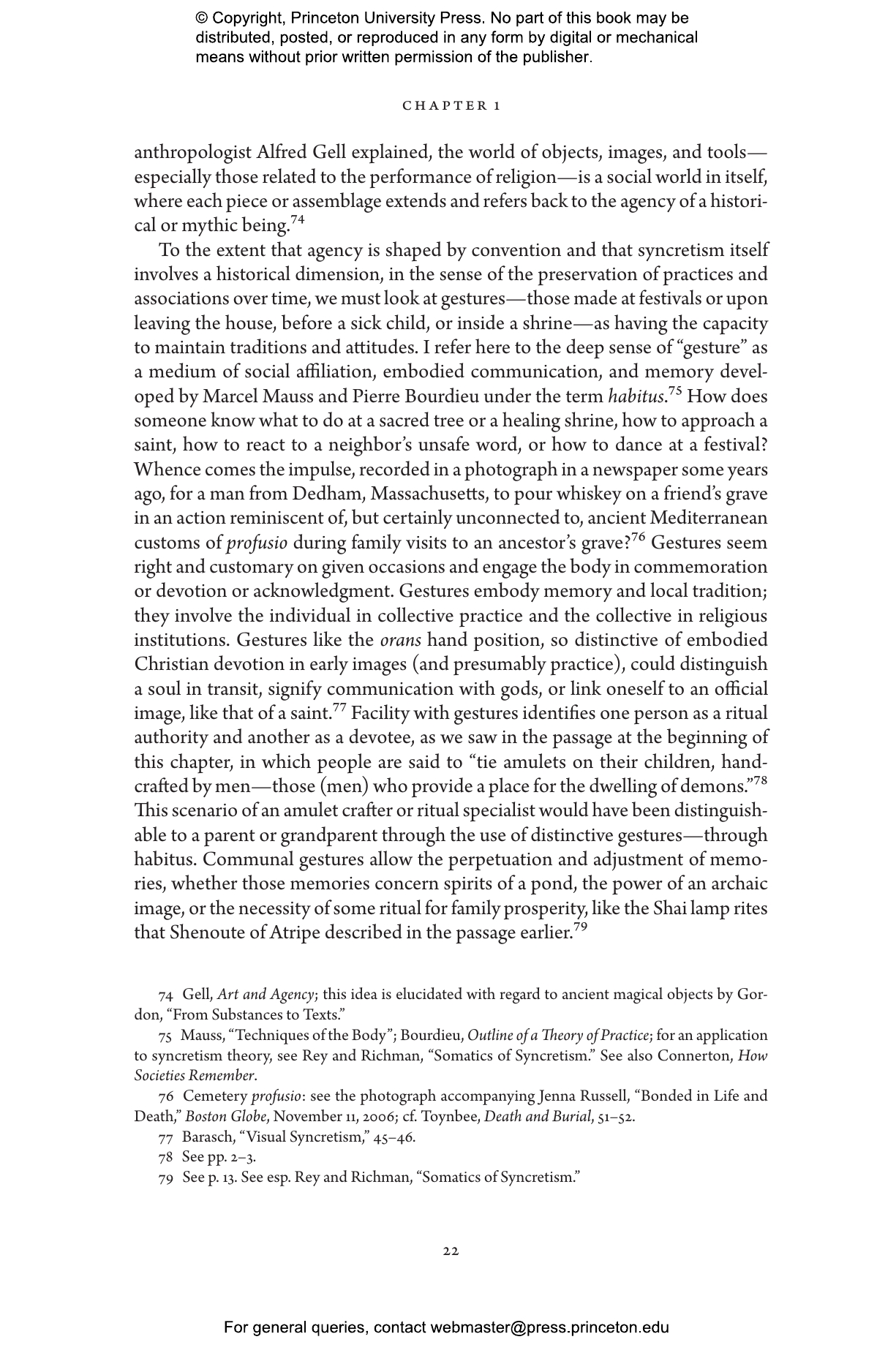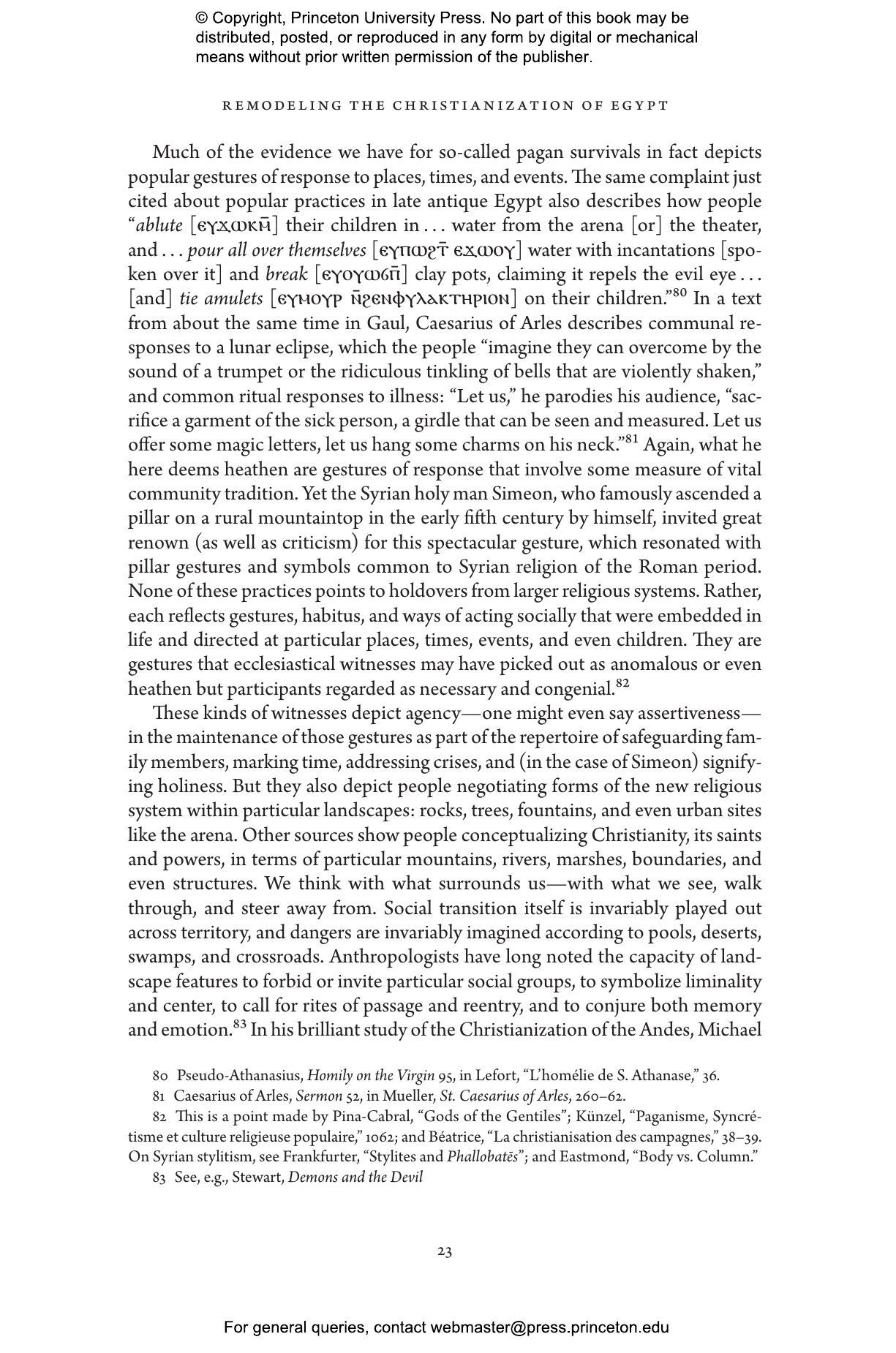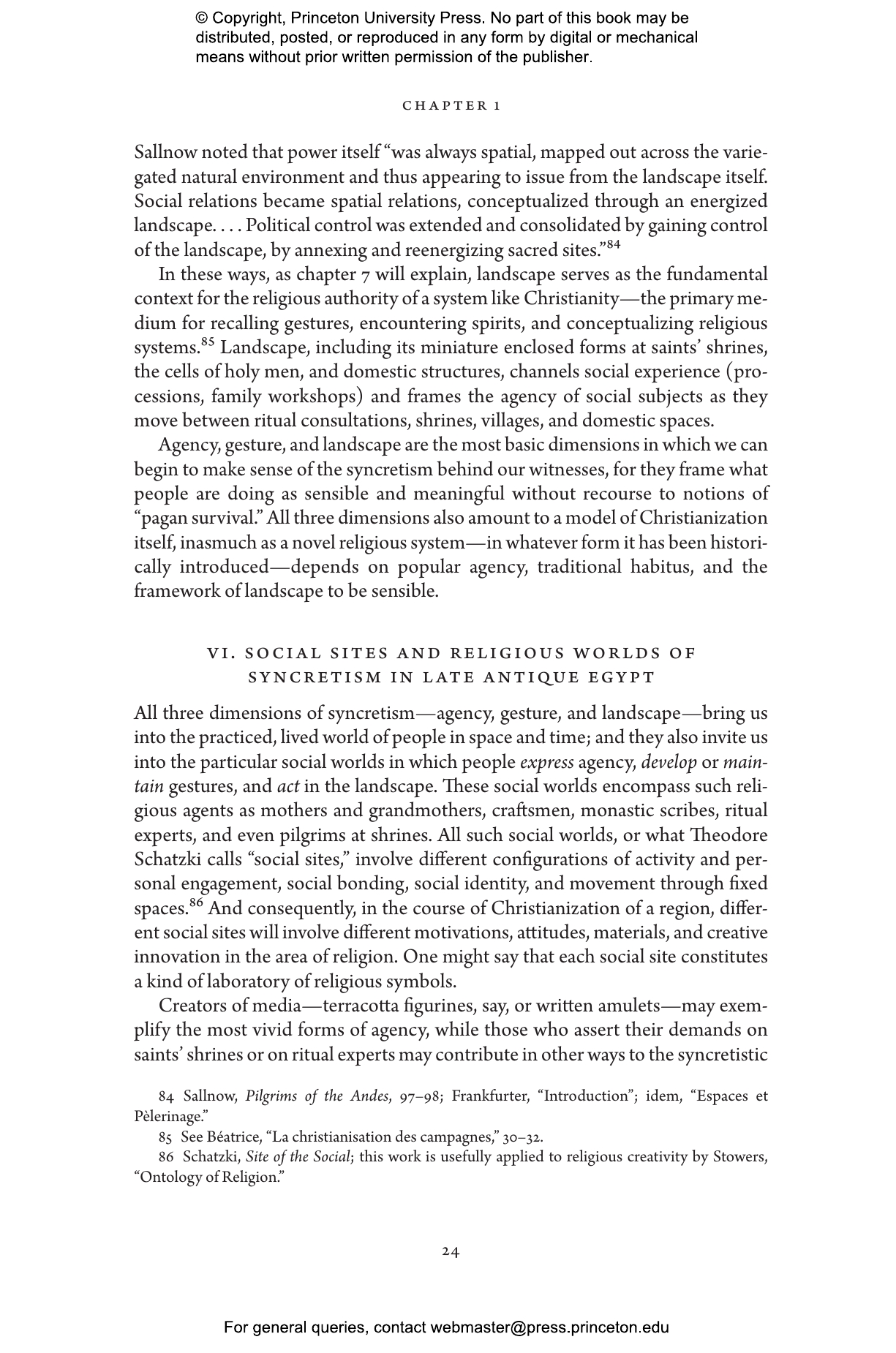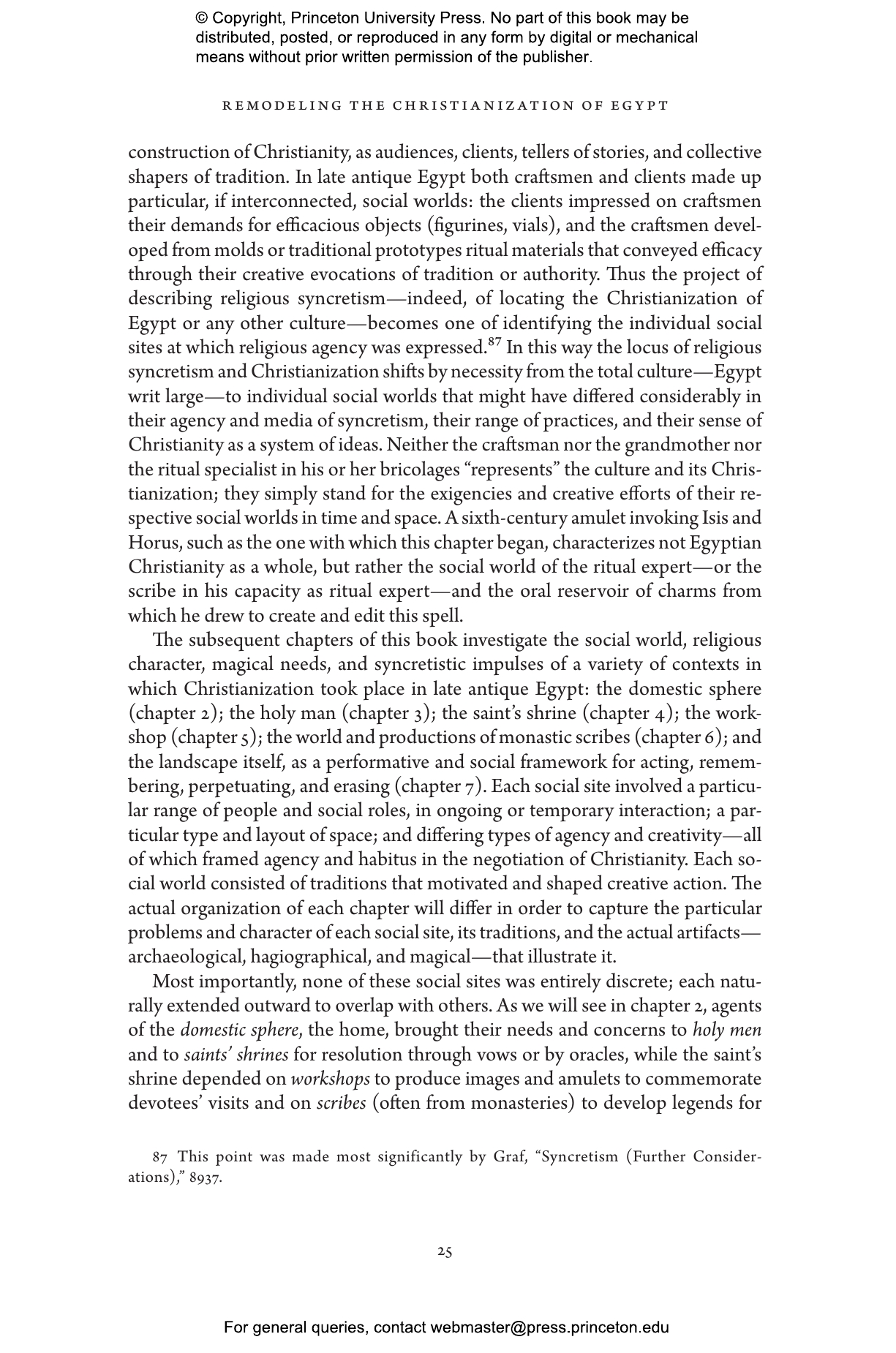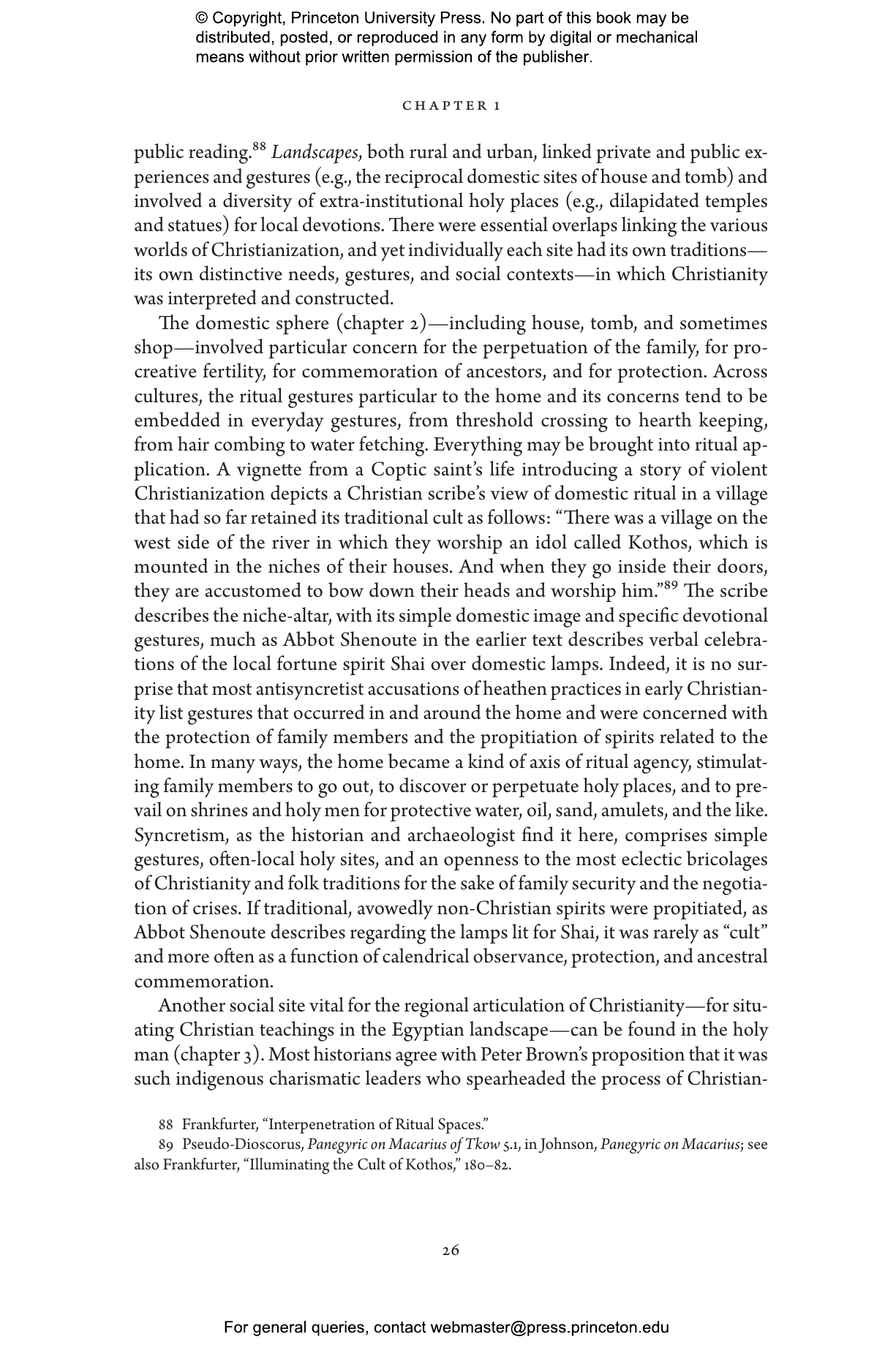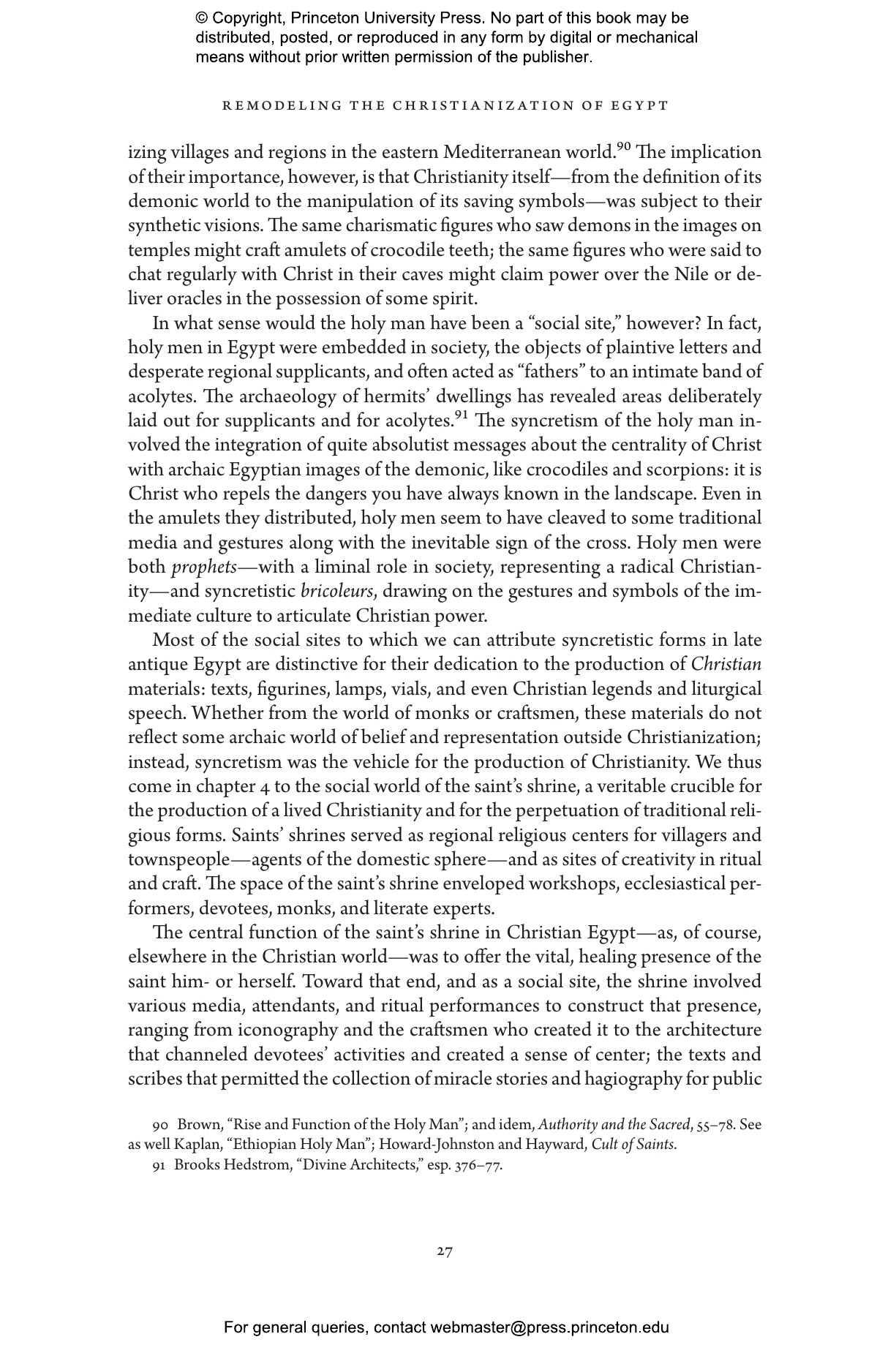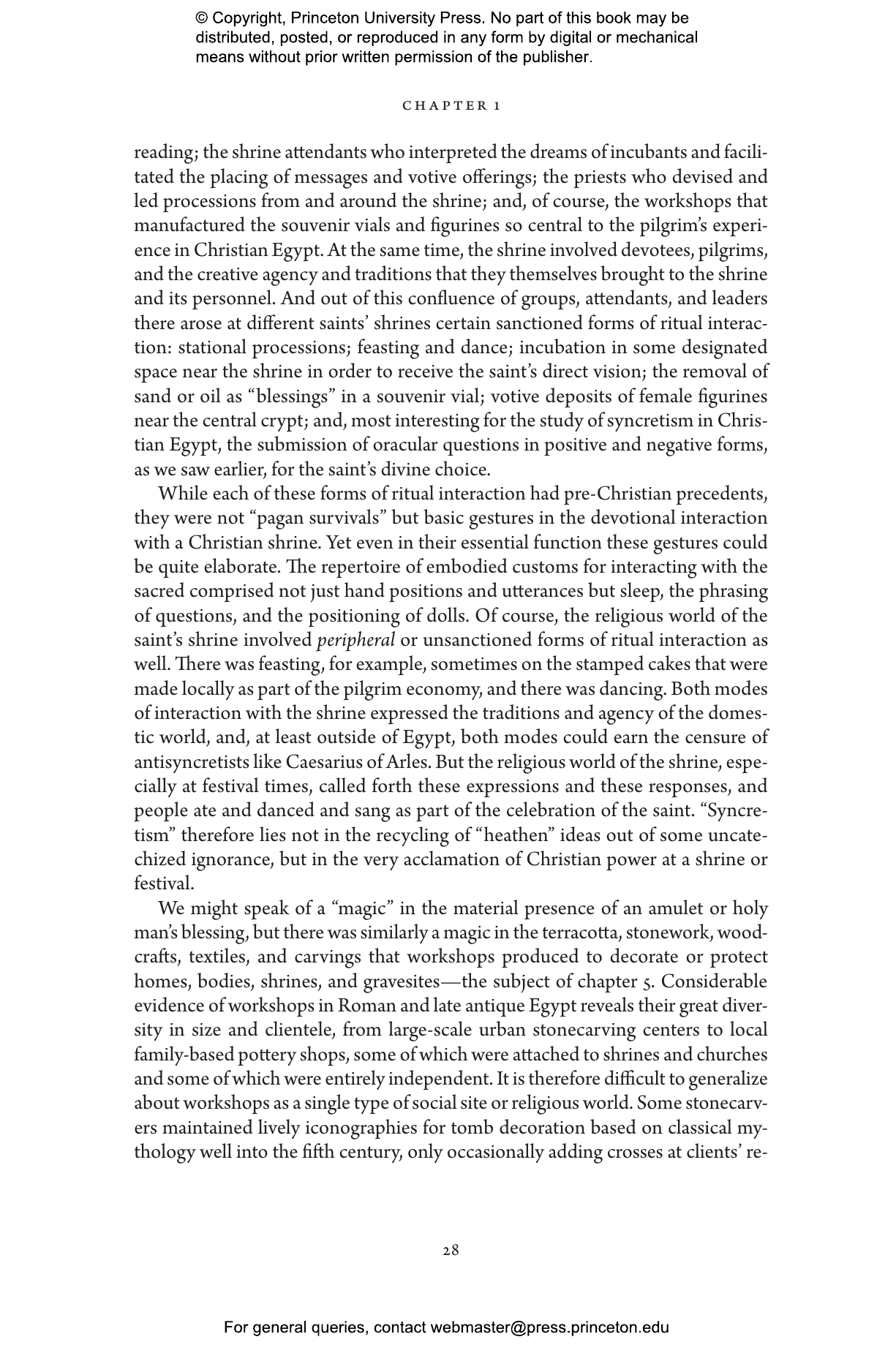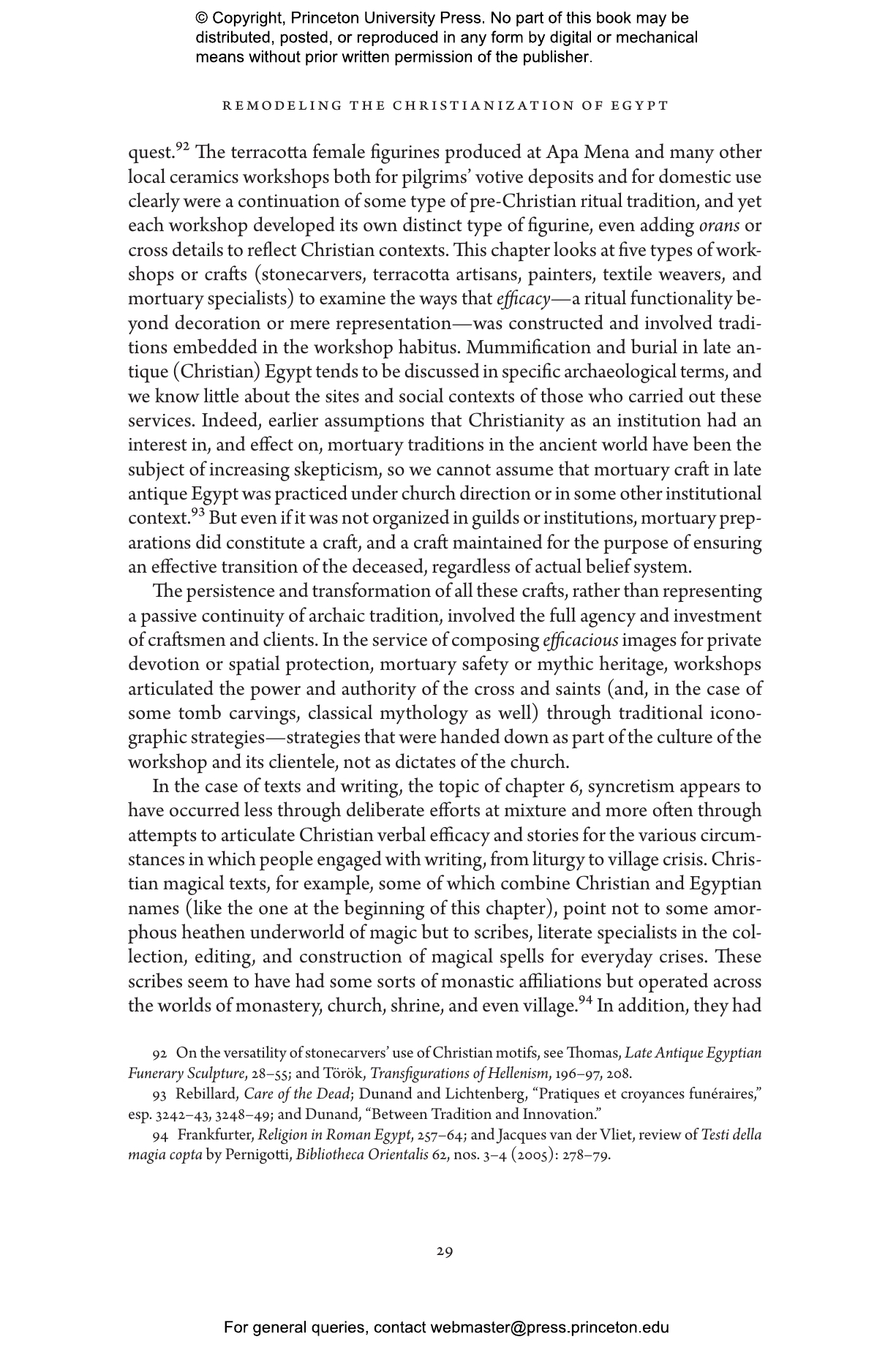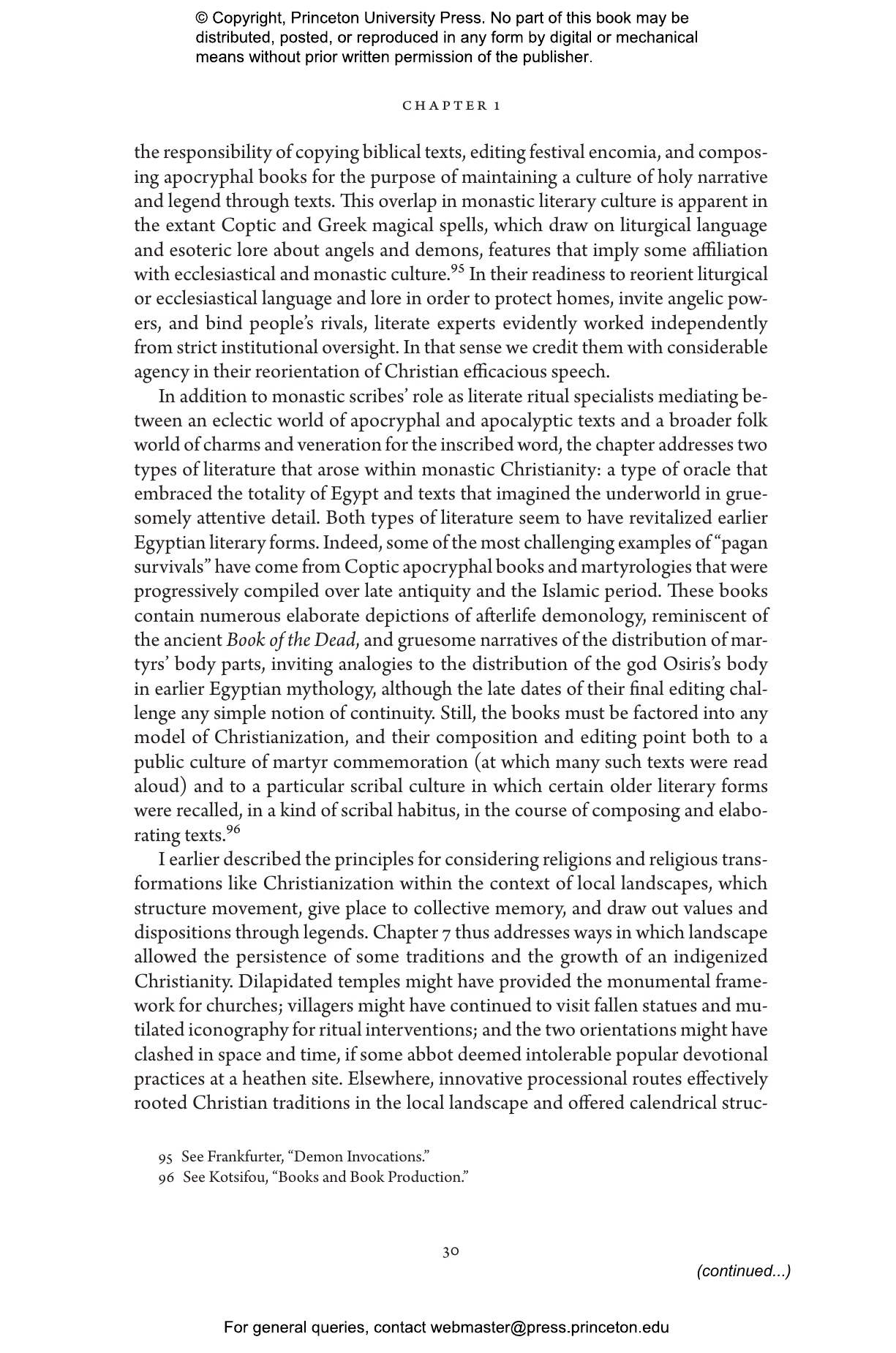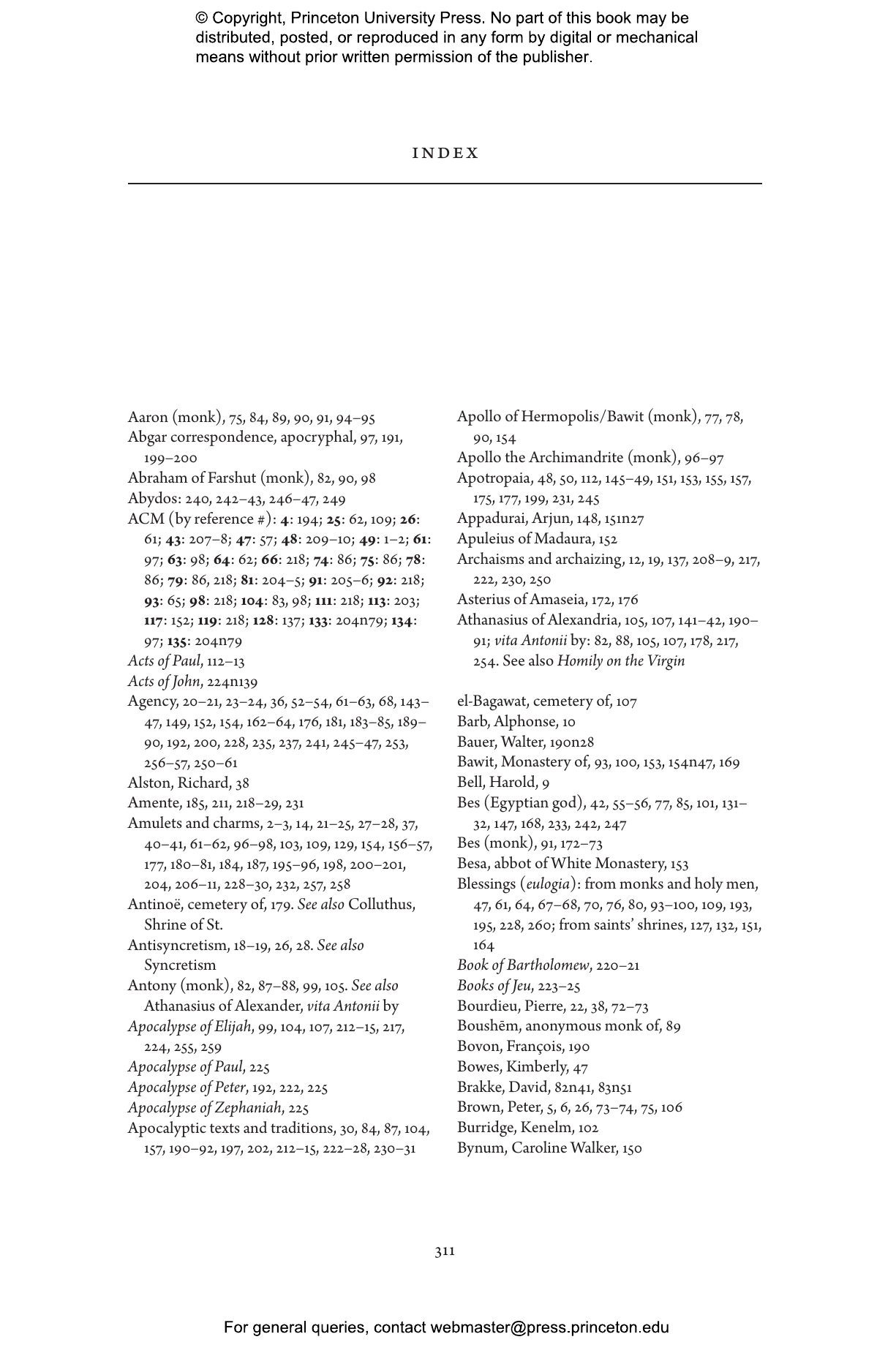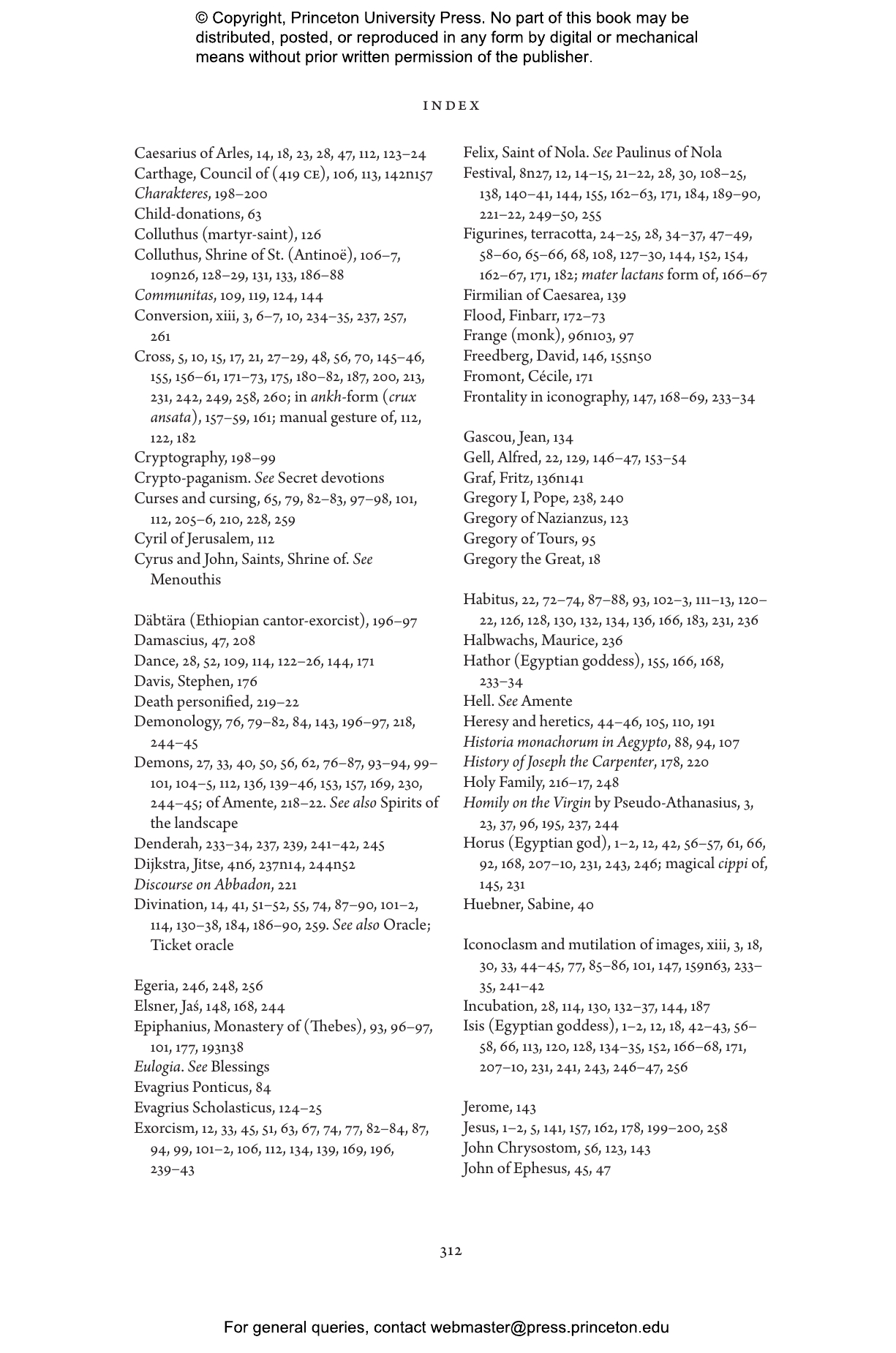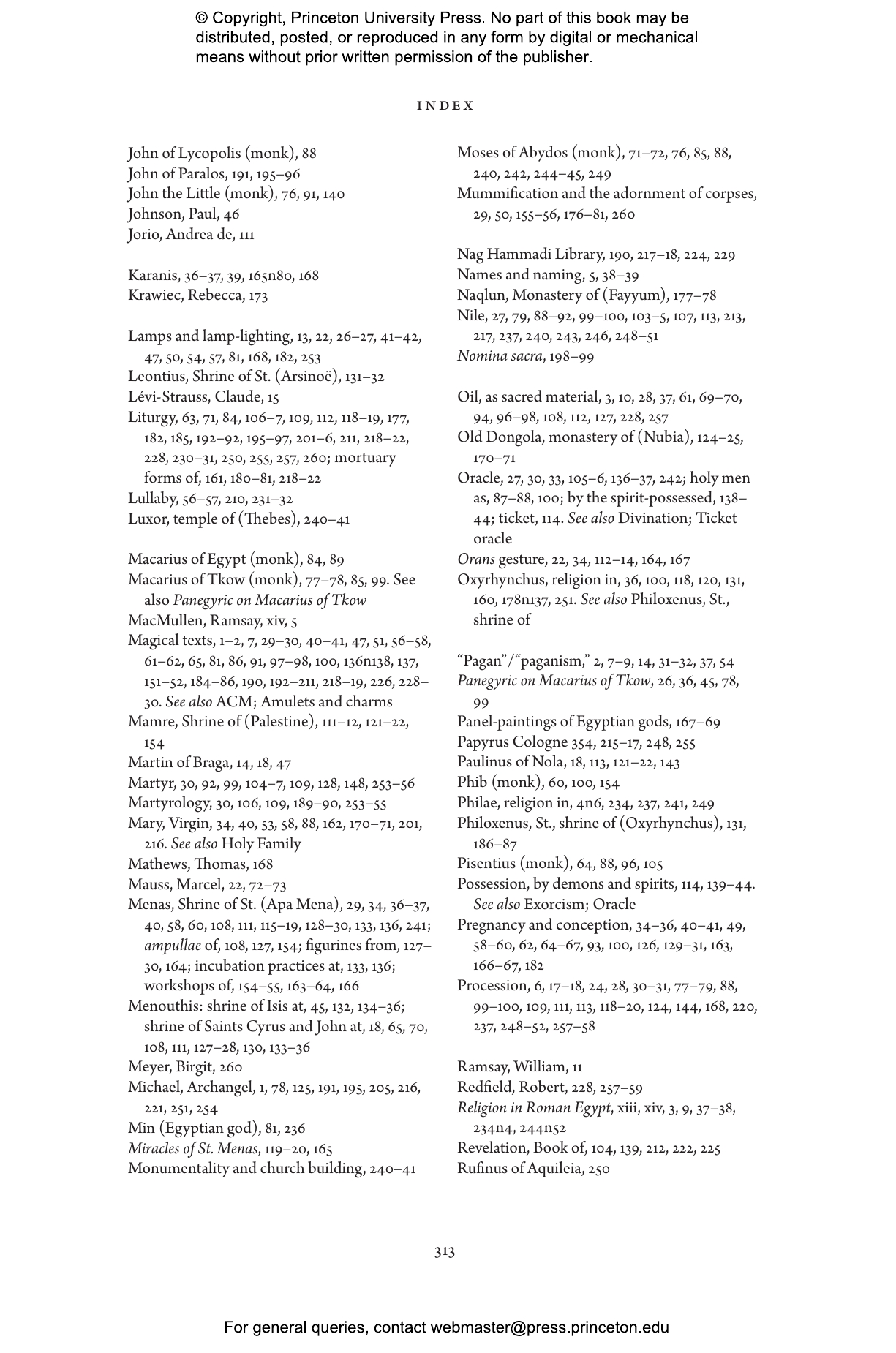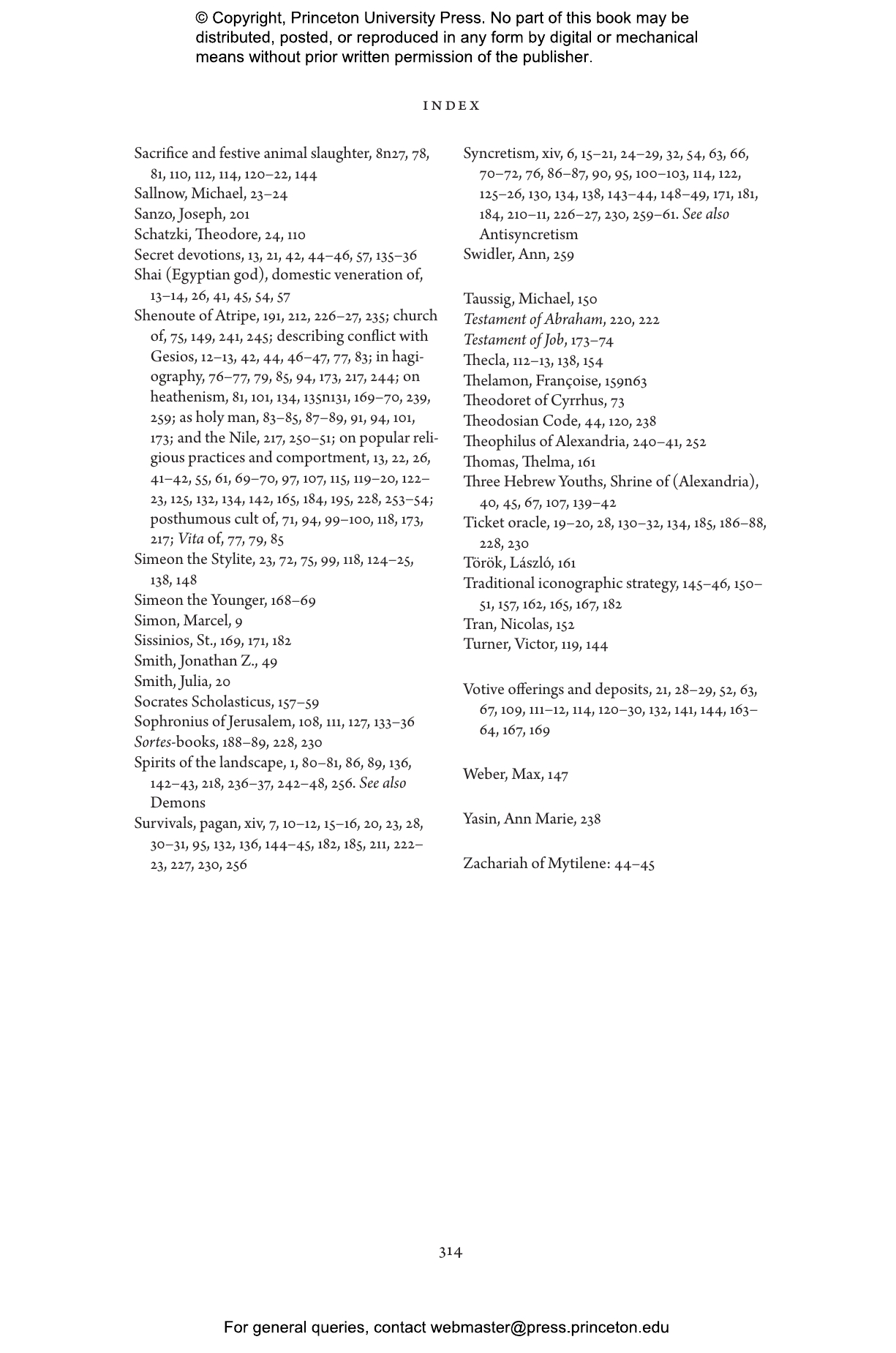How does a culture become Christian, especially one that is heir to such ancient traditions and spectacular monuments as Egypt? This book offers a new model for envisioning the process of Christianization by looking at the construction of Christianity in the various social and creative worlds active in Egyptian culture during late antiquity.
As David Frankfurter shows, members of these different social and creative worlds came to create different forms of Christianity according to their specific interests, their traditional idioms, and their sense of what the religion could offer. Reintroducing the term “syncretism” for the inevitable and continuous process by which a religion is acculturated, the book addresses the various formations of Egyptian Christianity that developed in the domestic sphere, the worlds of holy men and saints’ shrines, the work of craftsmen and artisans, the culture of monastic scribes, and the reimagination of the landscape itself, through processions, architecture, and the potent remains of the past.
Drawing on sermons and magical texts, saints’ lives and figurines, letters and amulets, and comparisons with Christianization elsewhere in the Roman empire and beyond, Christianizing Egypt reconceives religious change—from the “conversion” of hearts and minds to the selective incorporation and application of strategies for protection, authority, and efficacy, and for imagining the environment.
Awards and Recognition
- Winner of the Philip Schaff Prize, American Society of Church History
- One of Choice Reviews' Outstanding Academic Titles of 2018
David Frankfurter is professor of religion at Boston University and a scholar of early Christianity whose specialties include apocalyptic literature, magical texts, demonology, popular religion, and Egypt in the Roman and late antique periods. He is the author of Religion in Roman Egypt: Assimilation and Resistance and Evil Incarnate: Rumors of Demonic Conspiracy and Satanic Abuse in History (both Princeton). Each won an Award for Excellence in the Study of Religion from the American Academy of Religion.
"Outstanding. . . . The thesis is interesting [and] the evidence effective. . . . Agree or disagree with Frankfurter's central claims, Christianizing Egypt may become a methodological must-read for anyone working in pre-modern Christianity."—Zachary B. Smith, Reading Religion
"Christianizing Egypt is a thoughtful and exceptionally valuable study, with implications that go far beyond either Egypt or Late Antiquity. . . . An excellent book."—Philip Jenkins, Journal of Church and State
"Christianizing Egypt builds on David Frankfurter’s career working on the religious history of Roman and late antique Egypt and his deep knowledge of the Egyptian sources, material and literary alike, from hagiographical texts and sermons (in both Coptic and Greek) to terracotta figurines and amulets. The contribution this book makes to describing, analysing and interpreting religious change and process is very valuable indeed. There is much in this book for those interested in questions of religious change far beyond the confines of late antique Egypt."—Lucy Grig, Times Literary Supplement
"Offering a creative and convincing new picture of Christianity in Egypt in late antiquity, this book will appeal to a wide range of scholars in religion, anthropology, and sociology. Every page testifies to David Frankfurter's deep knowledge of an exceptionally wide range of ancient texts and artifacts. And his writing is so engaging and vivid that he makes the religious practices come alive. This will be a very influential book."—AnneMarie Luijendijk, Princeton University
"David Frankfurter has cut through a haze of misconceptions and loose interpretations of evidence to get to a new and greatly improved understanding of how Christianity came to dominate Egypt in late antiquity. His book provides ideas for thinking about the spread of Christianity throughout the Mediterranean world and indeed the processes of religious change and transition as a whole. His attention to archaeology, material culture, and the domestic contexts of Christianity is new, exciting, and extremely important."—T. G. Wilfong, University of Michigan
